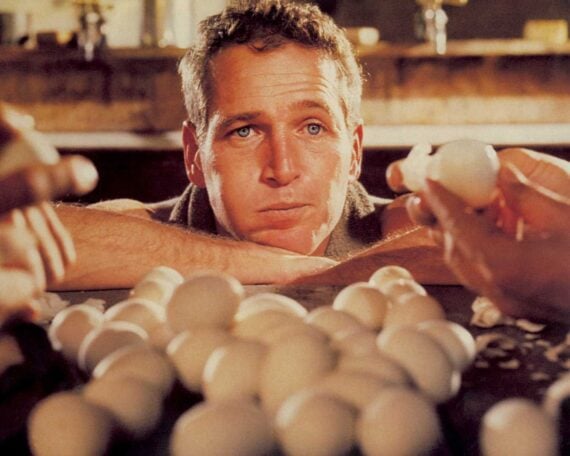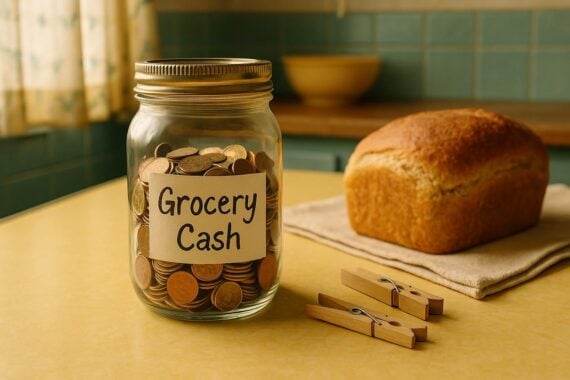In 2025, egg prices have gone through the roof, with some stores charging over $10 per dozen. The reason is a massive avian flu outbreak that’s wiped out millions of hens, sent supply chains into chaos, and left empty shelves everywhere.
And while today’s prices seem outrageous, the cost of eggs has fluctuated wildly over the years.
Using data from the Bureau of Labor Statistics, we tracked the average price of a dozen eggs from 1940 to 1999, adjusting them for inflation through January 2025 using the CPI Inflation Calculator.
Here is how much a dozen eggs cost the year you were born.
1940
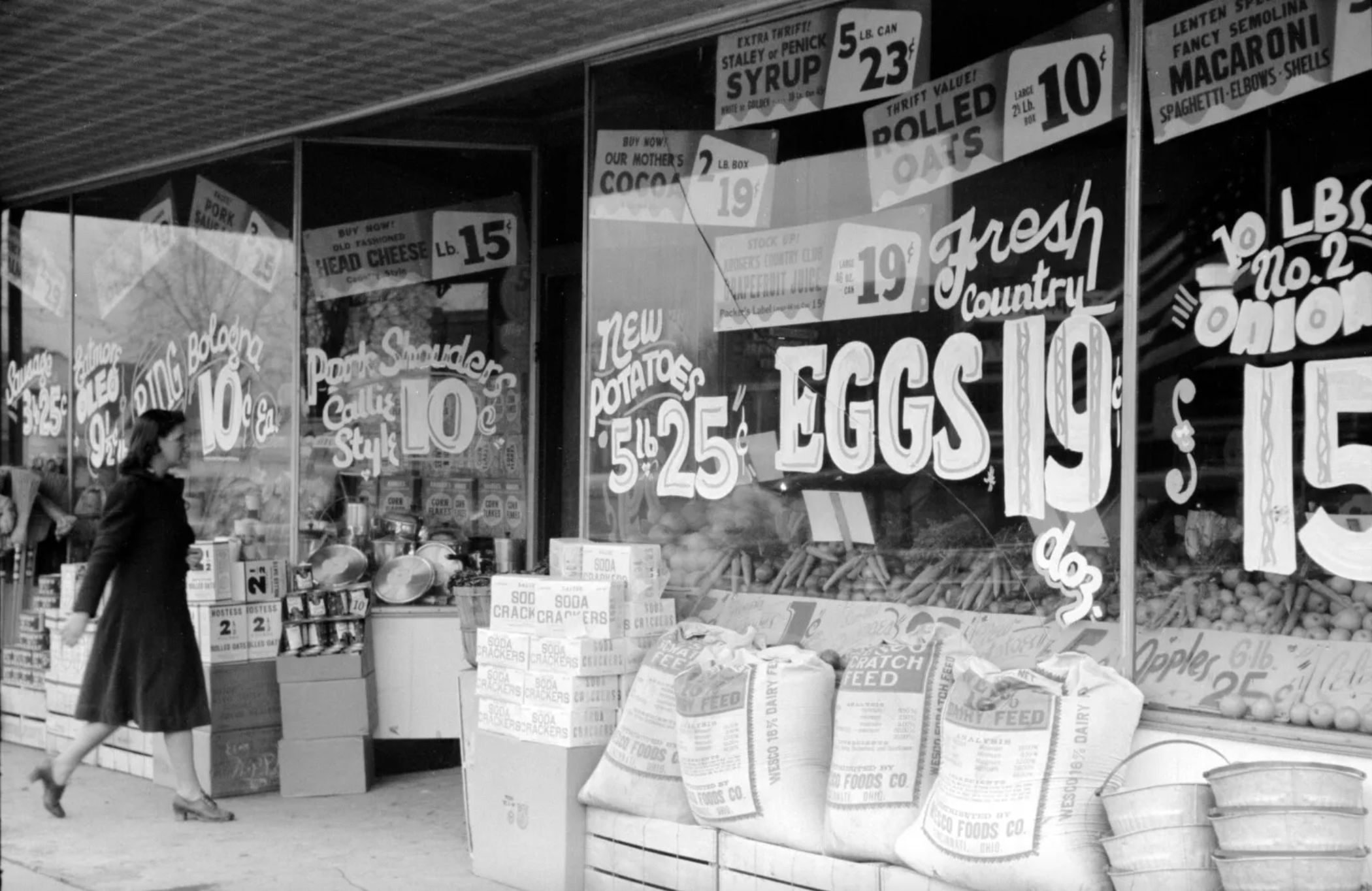
- Price of a dozen eggs: $0.33
- Adjusted for 2025 inflation: Approximately $7.69
In the 1940s, World War II dominated every aspect of life, including the grocery bill. The war effort caused industries to shift to producing military goods, resulting in rationing, supply shortages, and rising food prices, especially for breakfast staples.
Eggs in 1940, when adjusted for inflation, were actually more expensive than today’s prices, which are considered record high.
The war effort required a rationing system to manage shortages of essential goods, including food items like eggs. The U.S. introduced powdered eggs as a practical alternative to address the scarcity and high cost of fresh eggs. These dehydrated eggs had a long shelf life and were easy to transport,
By the time the war ended in 1945, eggs were still expensive and continued hovering around that range as the economy readjusted.
1941
![Women working in an egg-breaking plant. - Chicago, Illinois [by John Vachon, July 1941]](https://www.cheapism.com/wp-content/uploads/2025/04/egg-breaking-plant-1941.original.png)
- Price of a dozen eggs: $0.40
- Adjusted for 2025 inflation: Approximately $9.19
1942
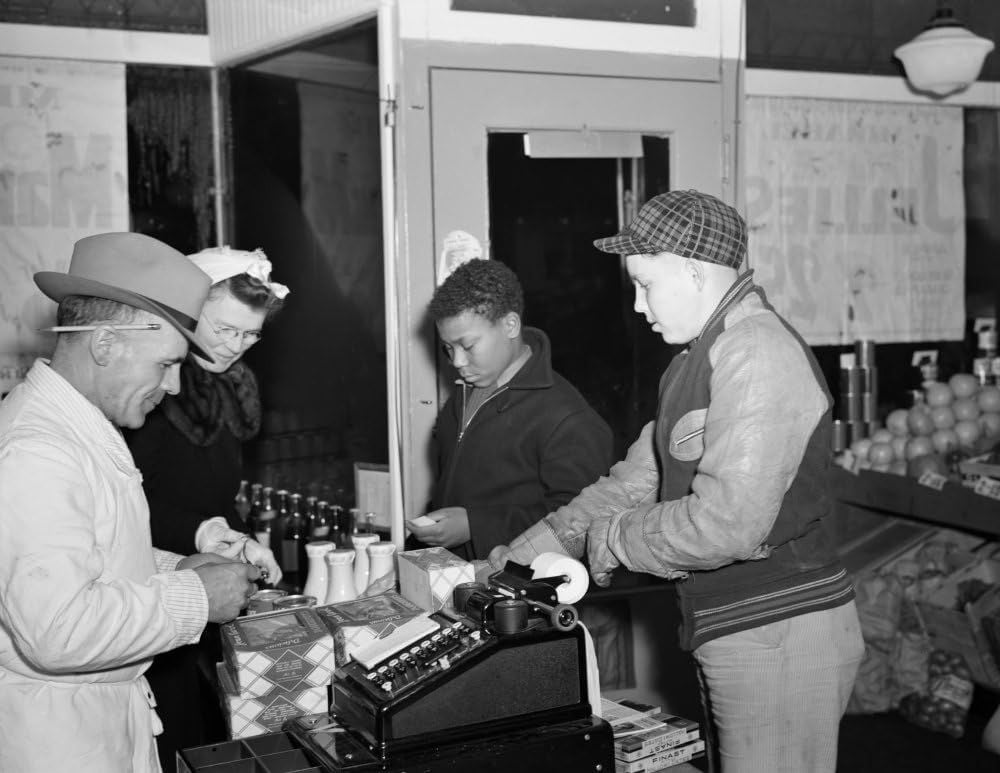
- Price of a dozen eggs: $0.48
- Adjusted for 2025 inflation: Approximately $9.90
1943
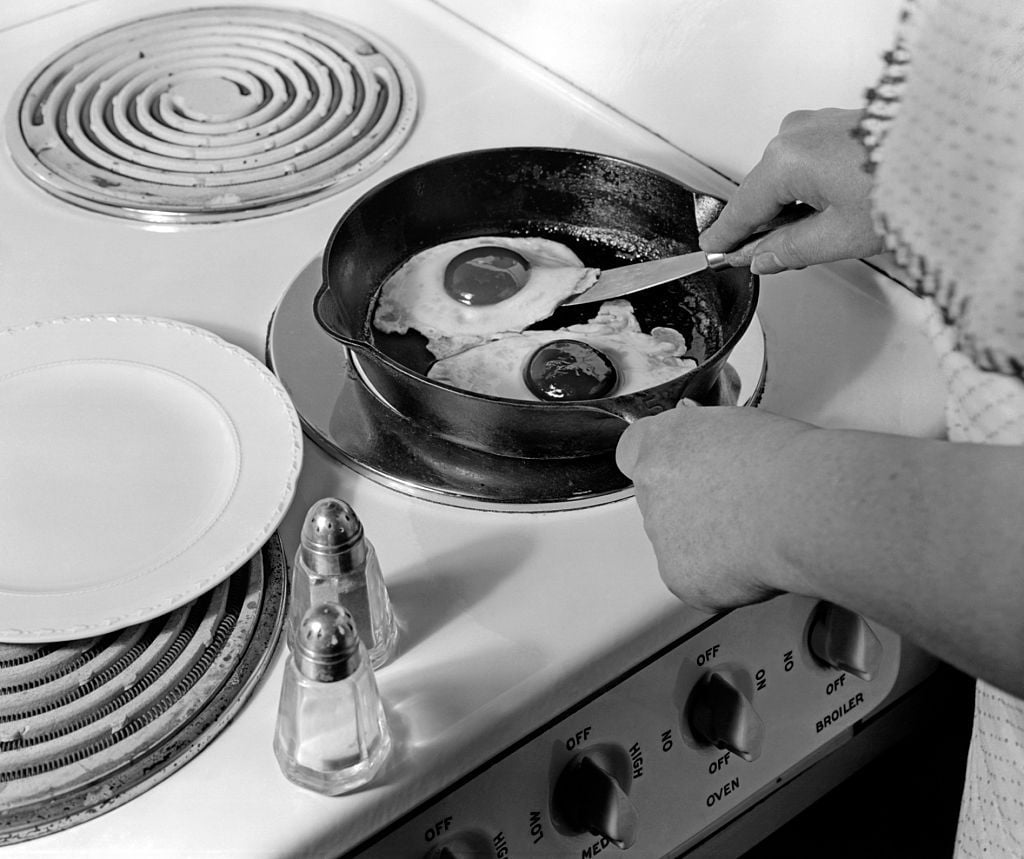
- Price of a dozen eggs: $0.57
- Adjusted for 2025 inflation: Approximately $10.93
1944
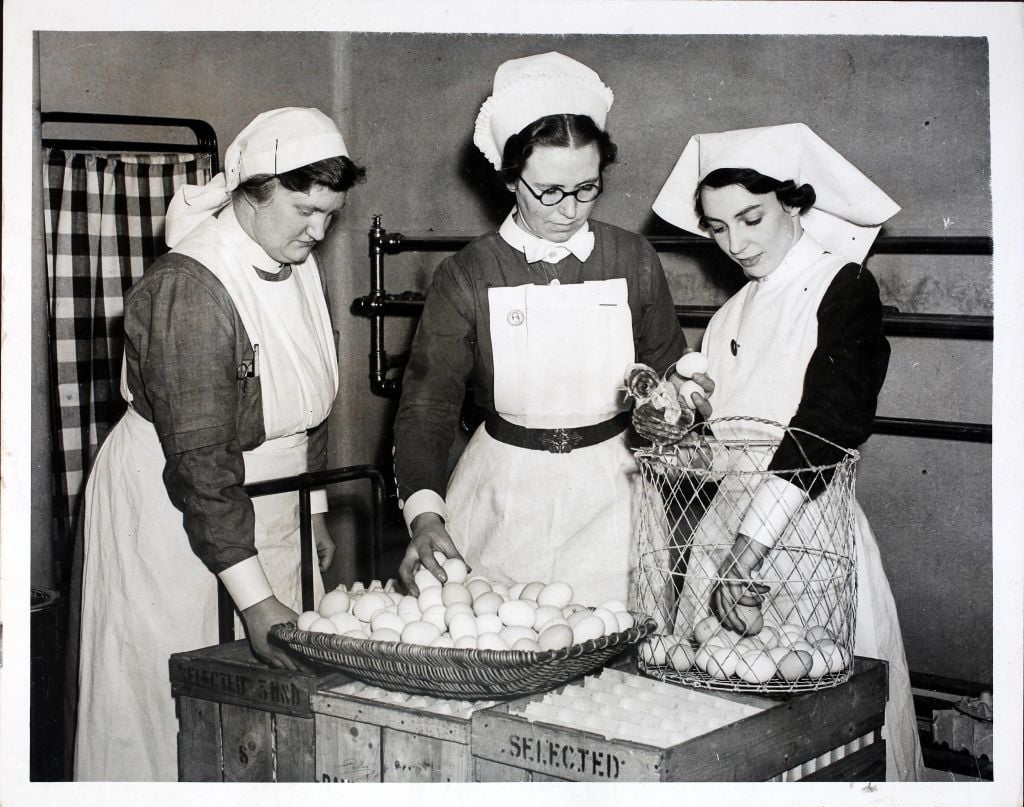
- Price of a dozen eggs: $0.55
- Adjusted for 2025 inflation: Approximately $10.24
Trending on Cheapism
1945
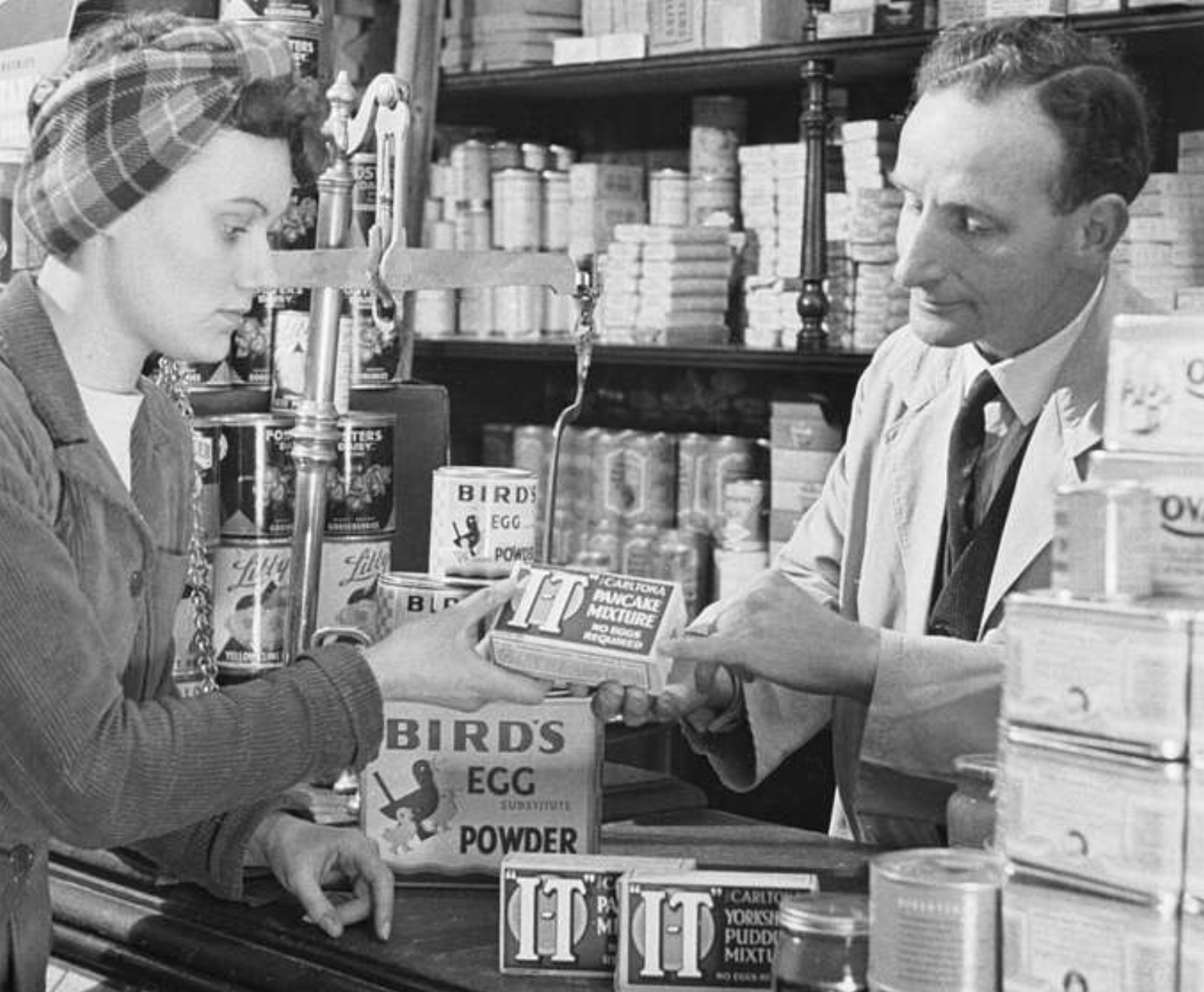
- Price of a dozen eggs: $0.58
- Adjusted for 2025 inflation: Approximately $10.56
1946
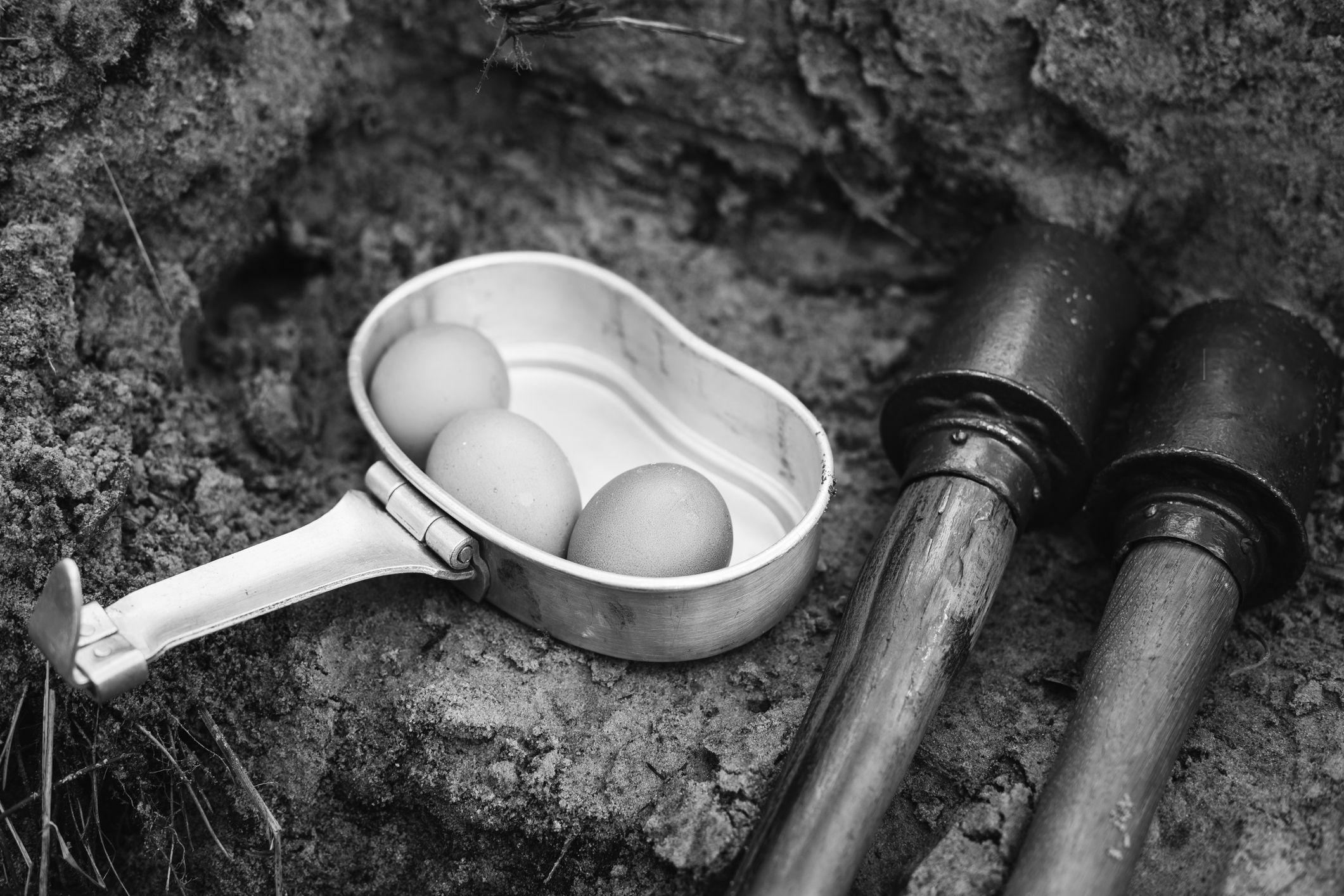
- Price of a dozen eggs: $0.59
- Adjusted for 2025 inflation: Approximately $10.50
1947
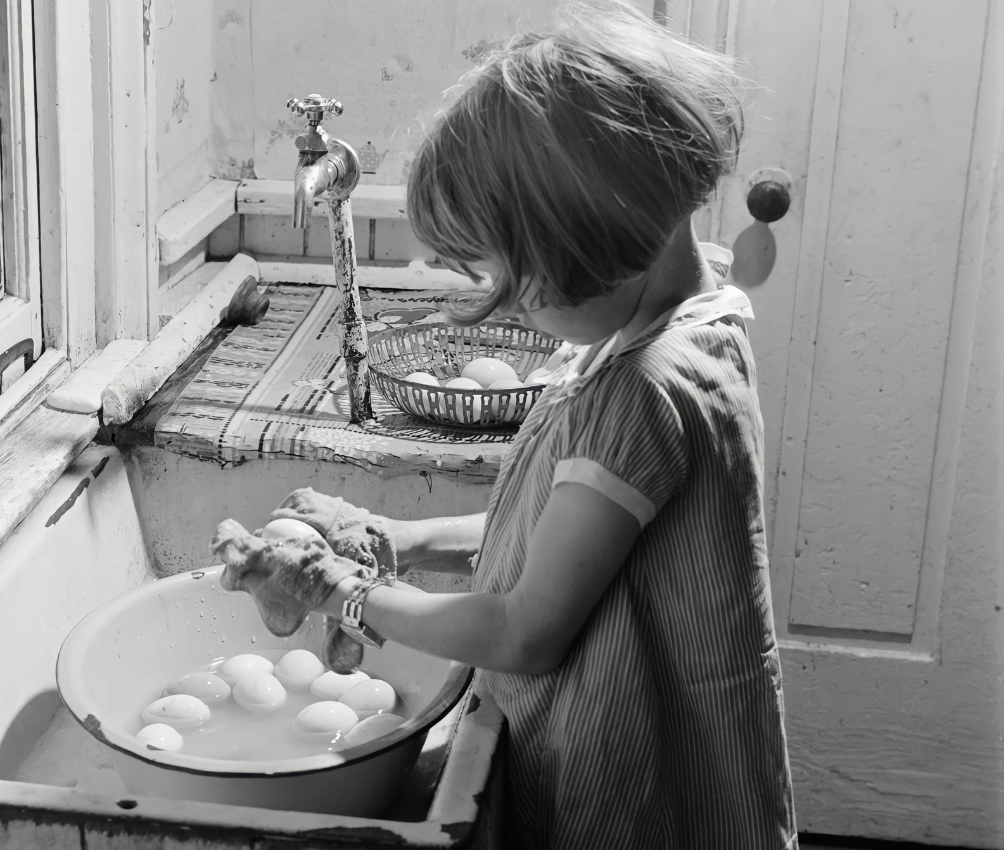
- Price of a dozen eggs: $0.70
- Adjusted for 2025 inflation: Approximately $10.55
Sign up for our newsletter
1948
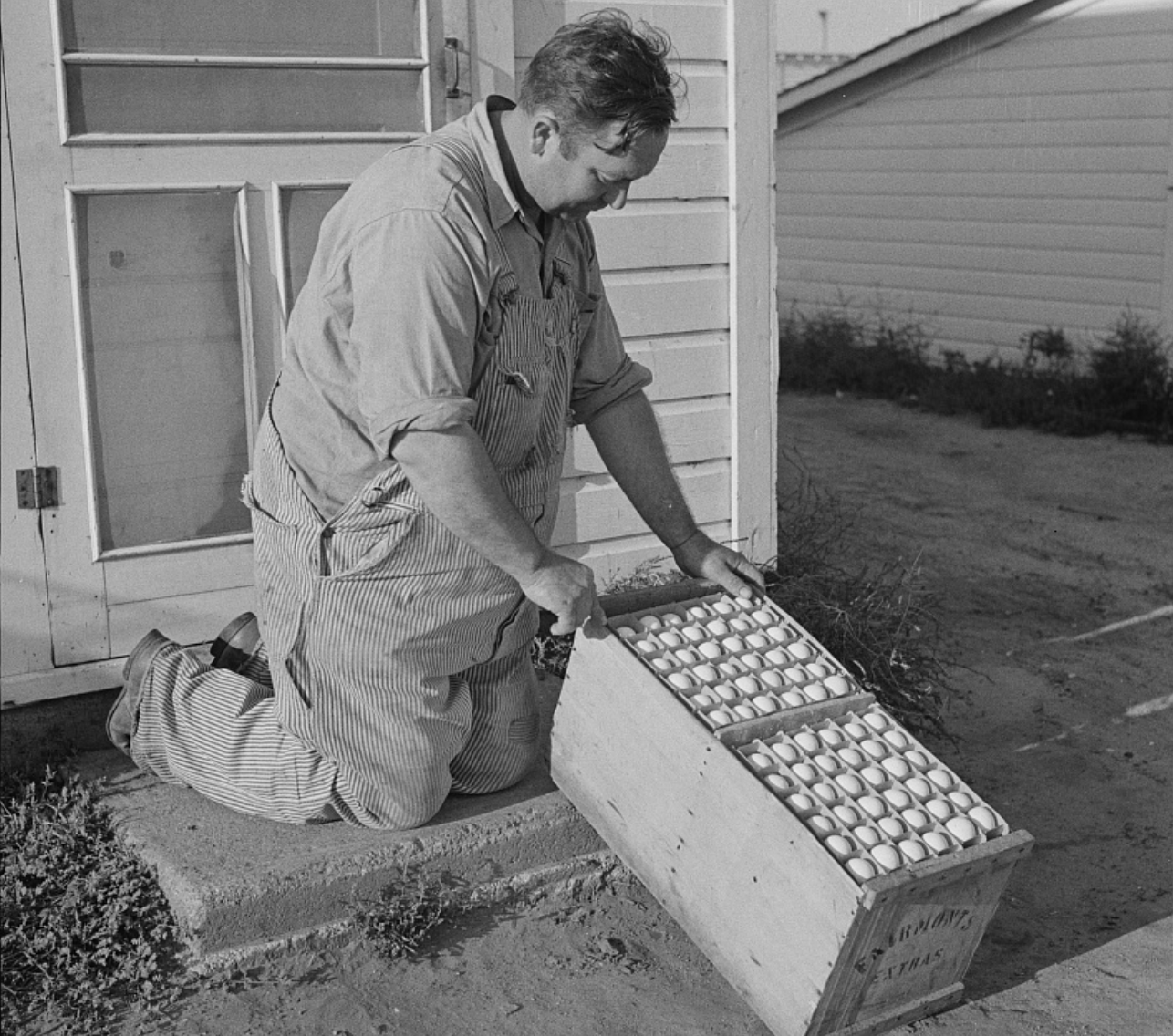
- Price of a dozen eggs: $0.72
- Adjusted for 2025 inflation: Approximately $9.84
1949
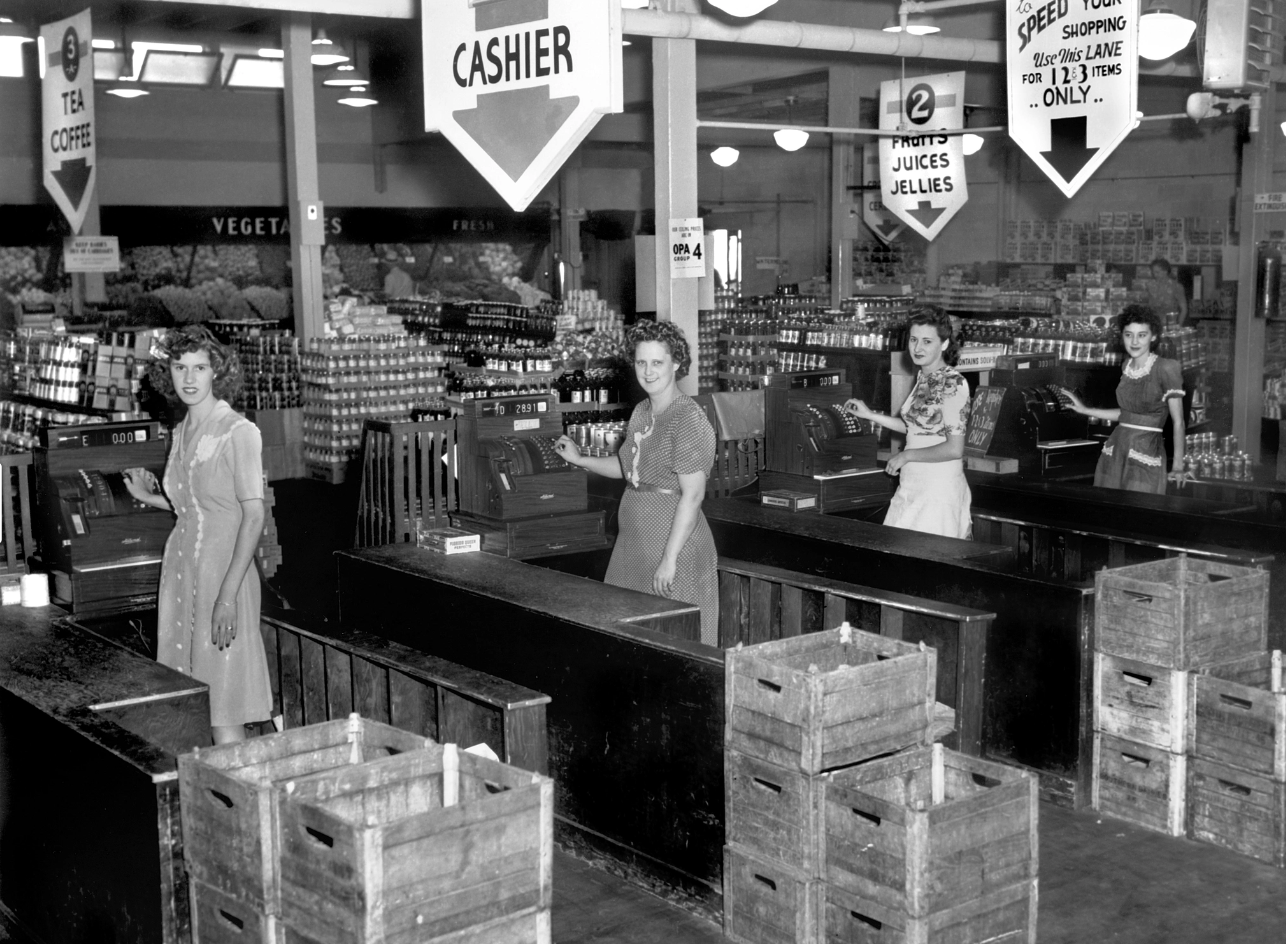
- Price of a dozen eggs: $0.70
- Adjusted for 2025 inflation: Approximately $9.45
1950

- Price of a dozen eggs: $0.60
- Adjusted for 2025 inflation: $8.29
The 1950s was the decade of economic prosperity, rising wages, and consumer expansion, often called the Golden Age of American Capitalism. The war was over, the economy was booming, and middle-class families were growing at a faster rate than ever. Americans were buying homes in the suburbs, and stocking up on groceries at the supermarket — because, for the first time, grocery shopping was becoming a true American pastime.
But while life was getting easier, eggs weren’t exactly a bargain yet. Inflation persisted, and the Korean War (1950-1953) led to a resurgence in government spending. But as industrialized farming ramped up, prices steadily dropped.
1951

- Price of a dozen eggs: $0.74
- Adjusted for 2025 inflation: $9.46
1952
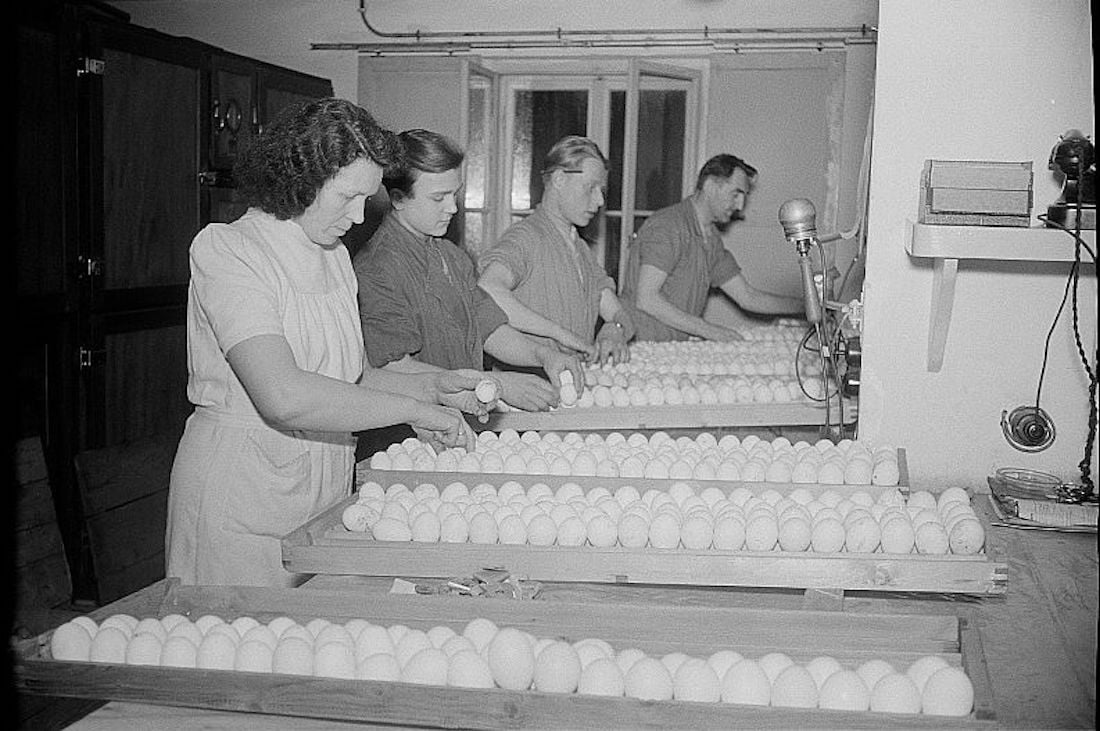
- Price of a dozen eggs: $0.67
- Adjusted for 2025 inflation: $8.21
1953
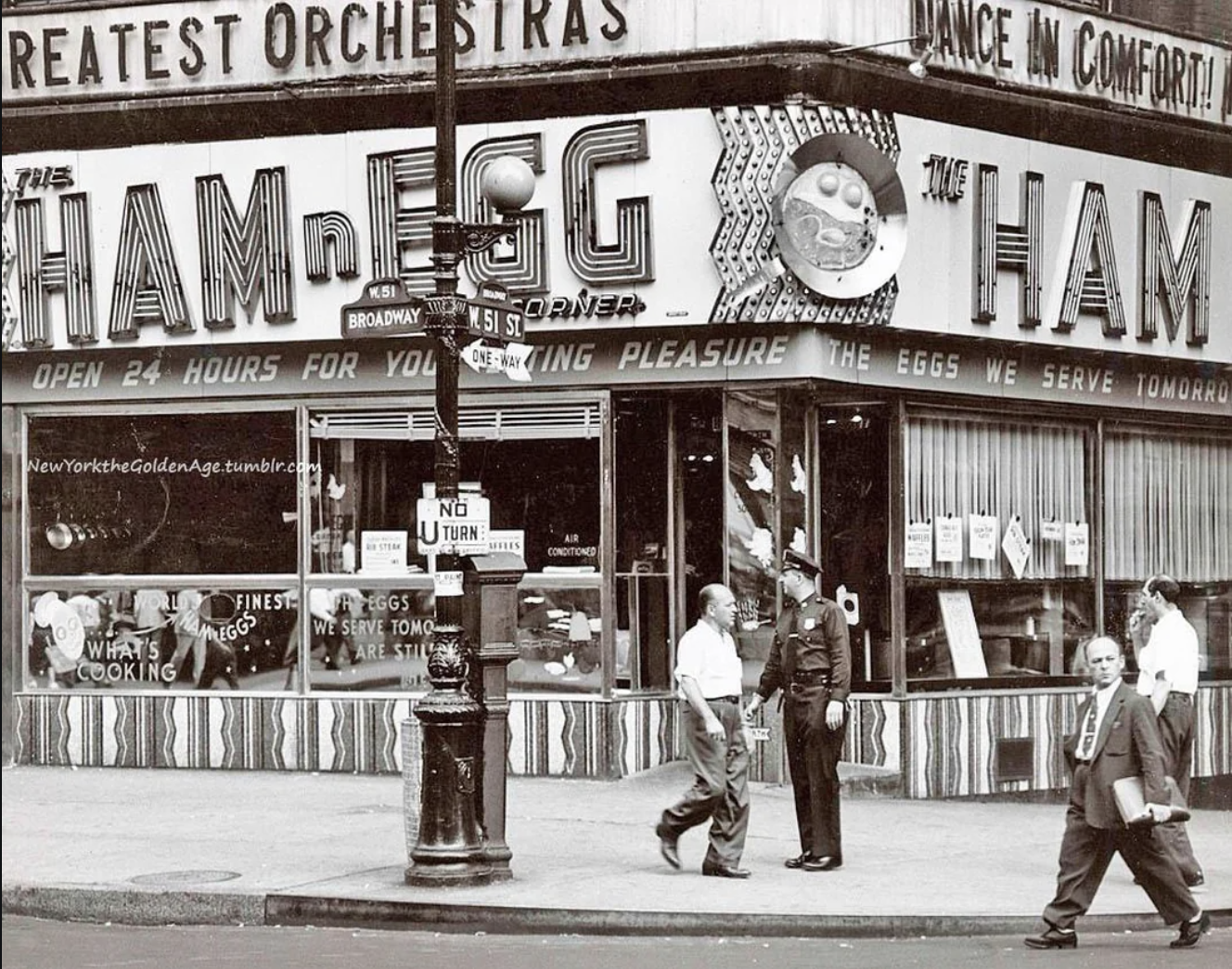
- Price of a dozen eggs: $0.70
- Adjusted for 2025 inflation: $8.55
In 1953, America was feeling the economic consequences of yet another war — the Korean War, which had driven up government spending and inflation. When the war ended that year, the economy slowed down, and the government cut military expenditures, leading to a recession. In 1957, while the U.S. economy took a hit as the country fell into a recession, egg prices continued dropping slightly to $0.57 per dozen.
1954

- Price of a dozen eggs: $0.59
- Adjusted for 2025 inflation: $7.12
1955

- Price of a dozen eggs: $0.61
- Adjusted for 2025 inflation: $7.42
1956
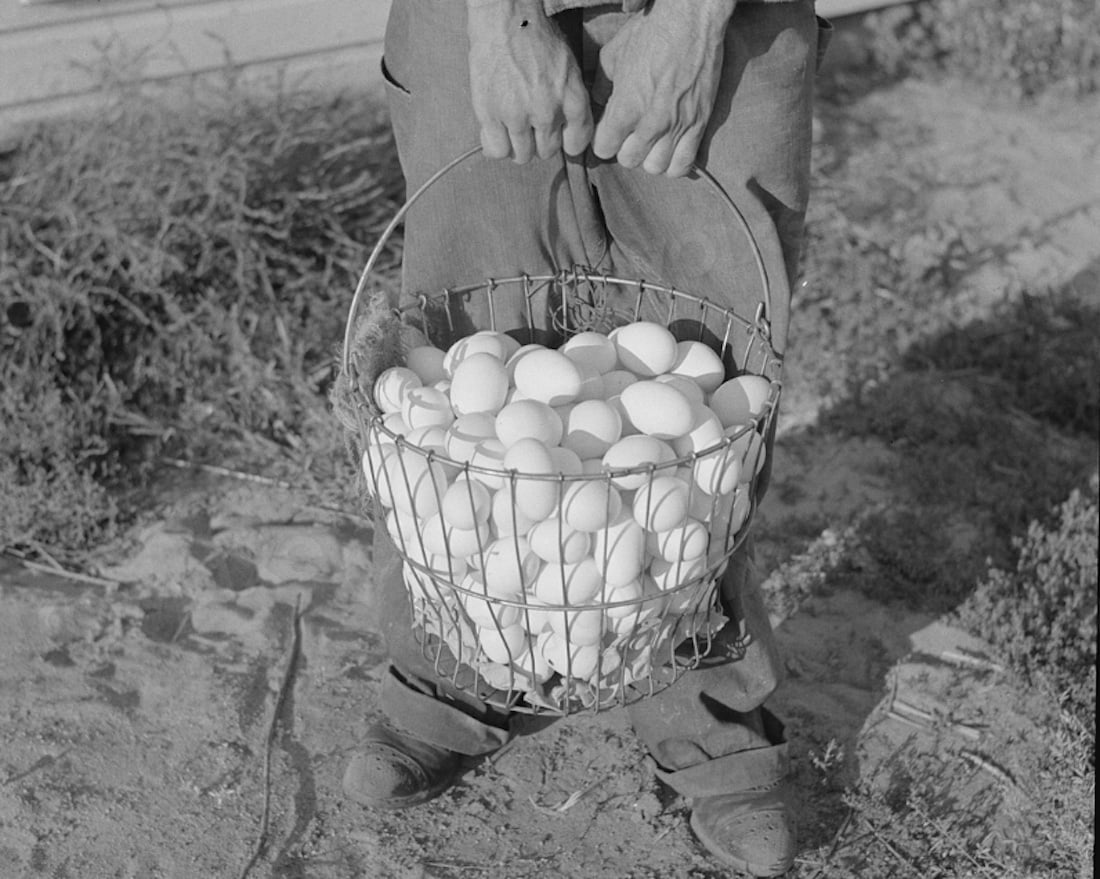
- Price of a dozen eggs: $0.60
- Adjusted for 2025 inflation: $7.27
1957
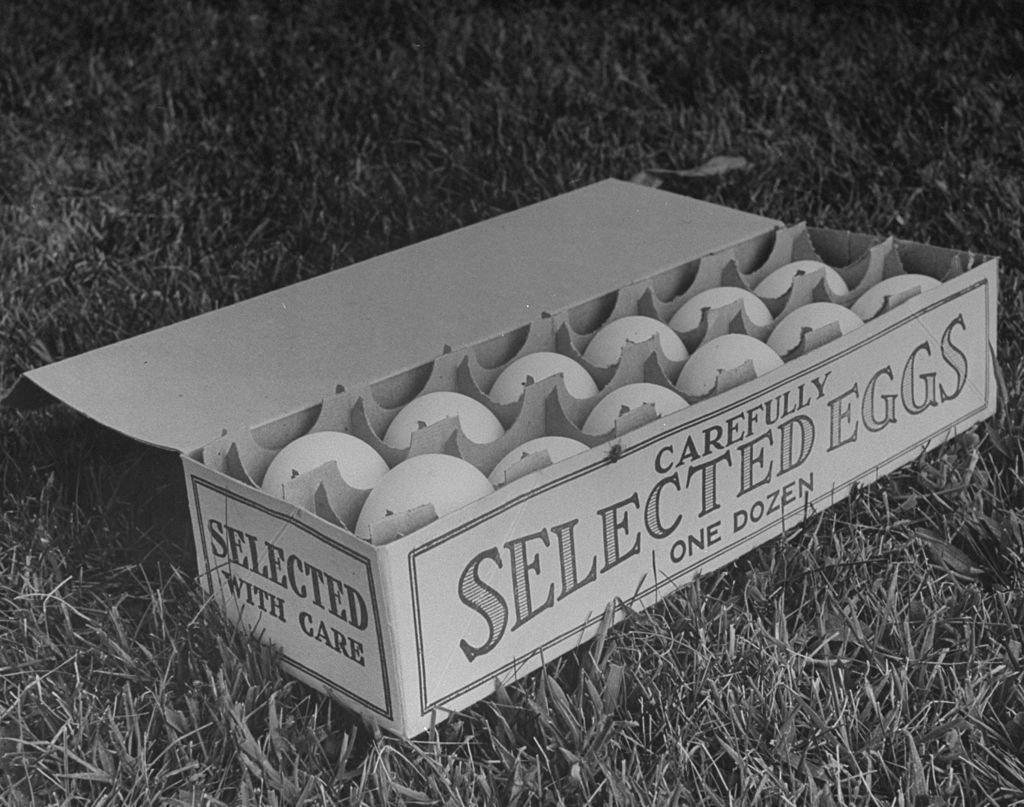
- Price of a dozen eggs: $0.57
- Adjusted for 2025 inflation: $6.71
1958

- Price of a dozen eggs: $0.60
- Adjusted for 2025 inflation: $6.81
1959
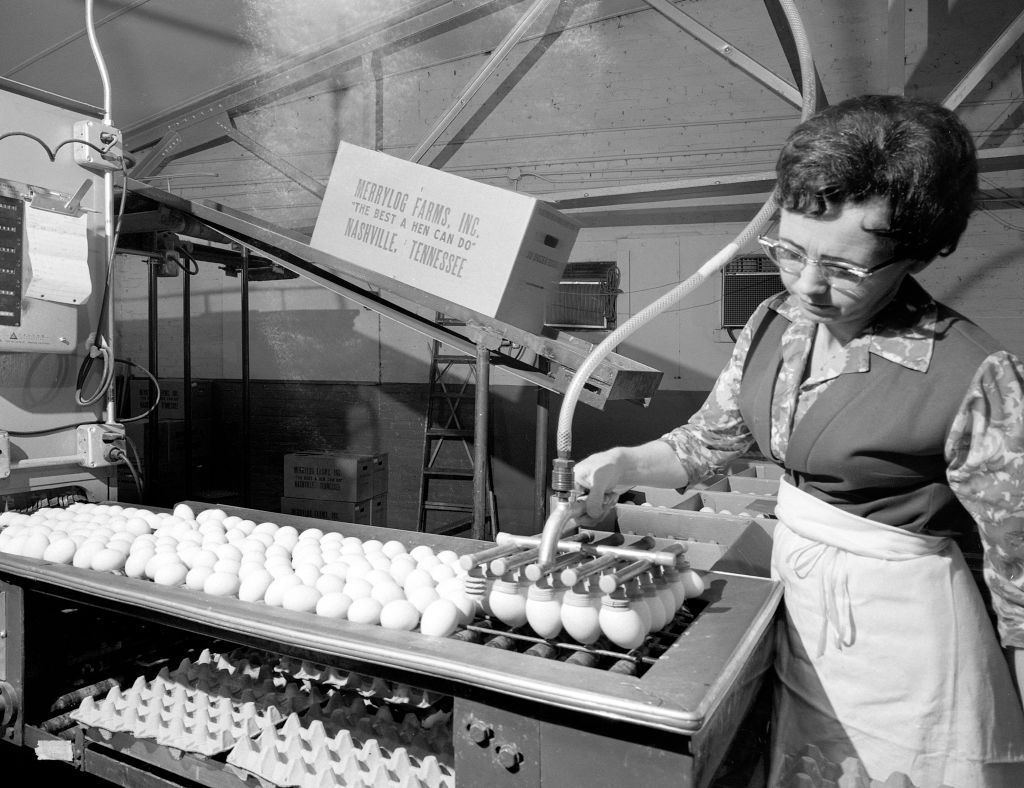
- Price of a dozen eggs: $0.53
- Adjusted for 2025 inflation: $5.94
1960
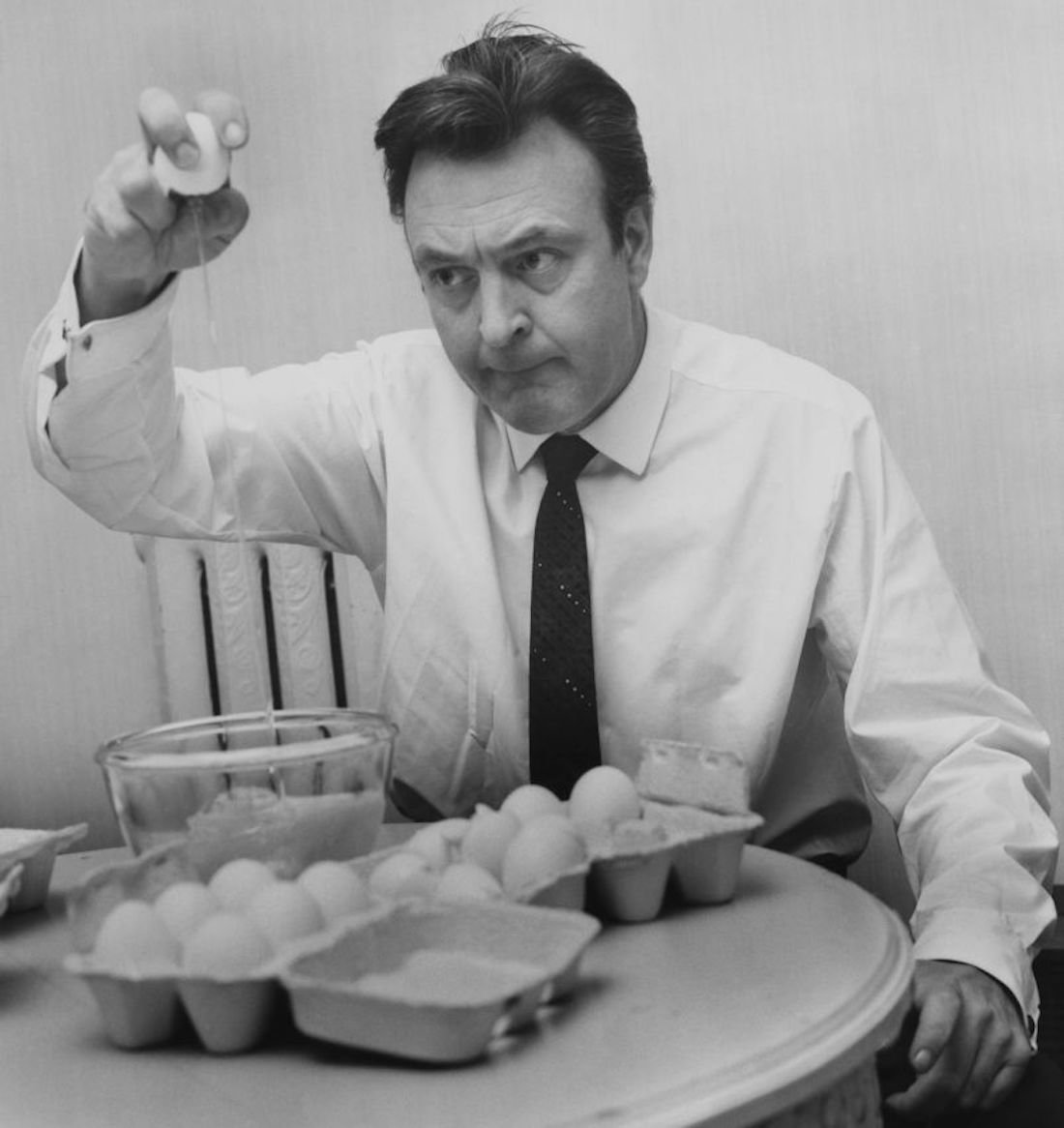
- Price of a dozen eggs: $0.57
- Adjusted for 2025 inflation: $6.32
The 1960s were a decade of booming industry, social change, and Cold War tensions. JFK was elected, sent a man to the moon, and was assassinated within three years. The Vietnam War escalated, the Civil Rights Movement gained momentum, and suburban life flourished. Through it all, eggs stayed cheap, whether scrambled at home or served up at a diner with a side of bacon.
At the start of the decade, eggs were already more affordable than in the post-war years and hit their lowest point by the mid-60s. However, by 1969 costs started creeping back up.
1961
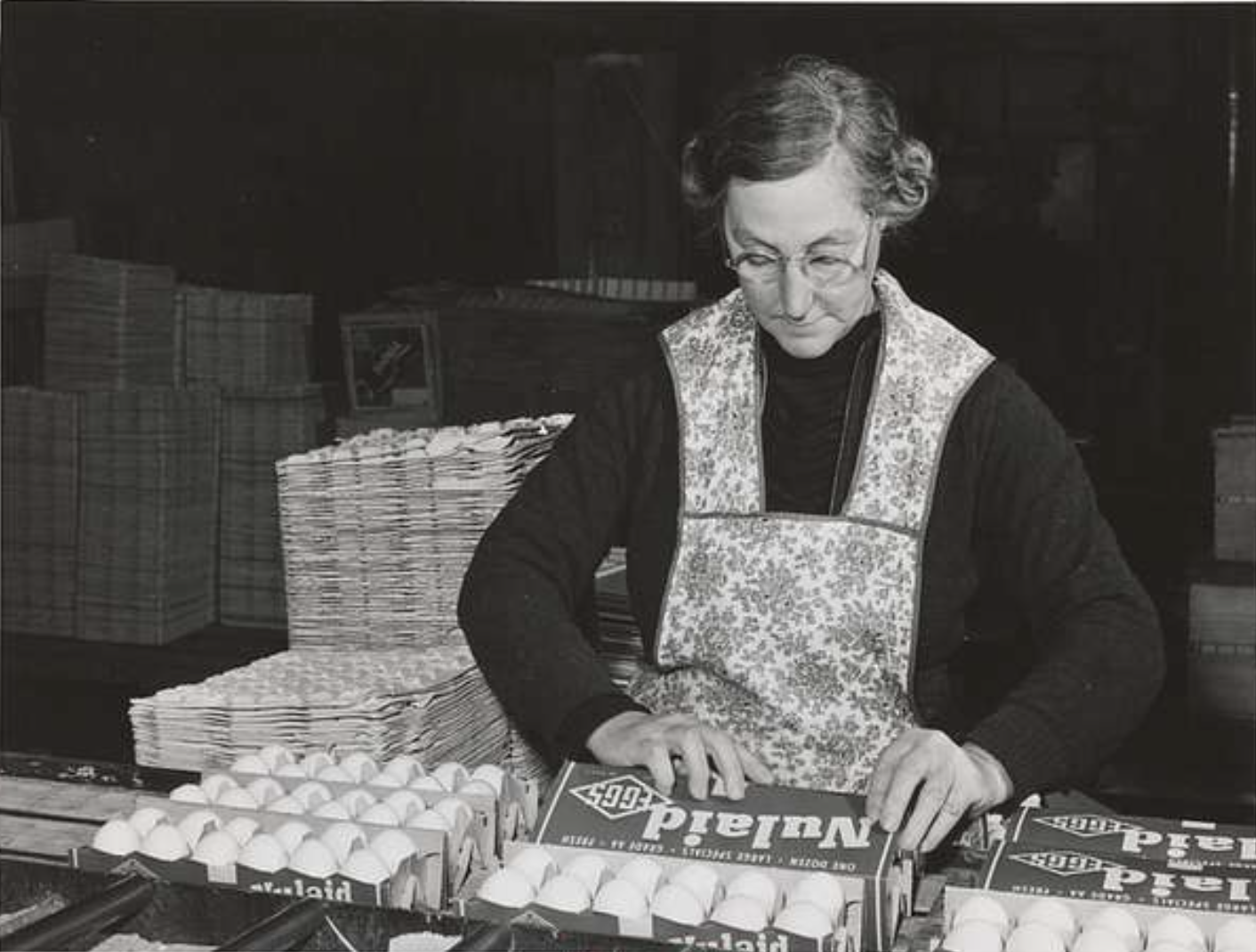
- Price of a dozen eggs: $0.57
- Adjusted for 2025 inflation: $6.21
1962

- Price of a dozen eggs: $0.54
- Adjusted for 2025 inflation: $5.85
1963
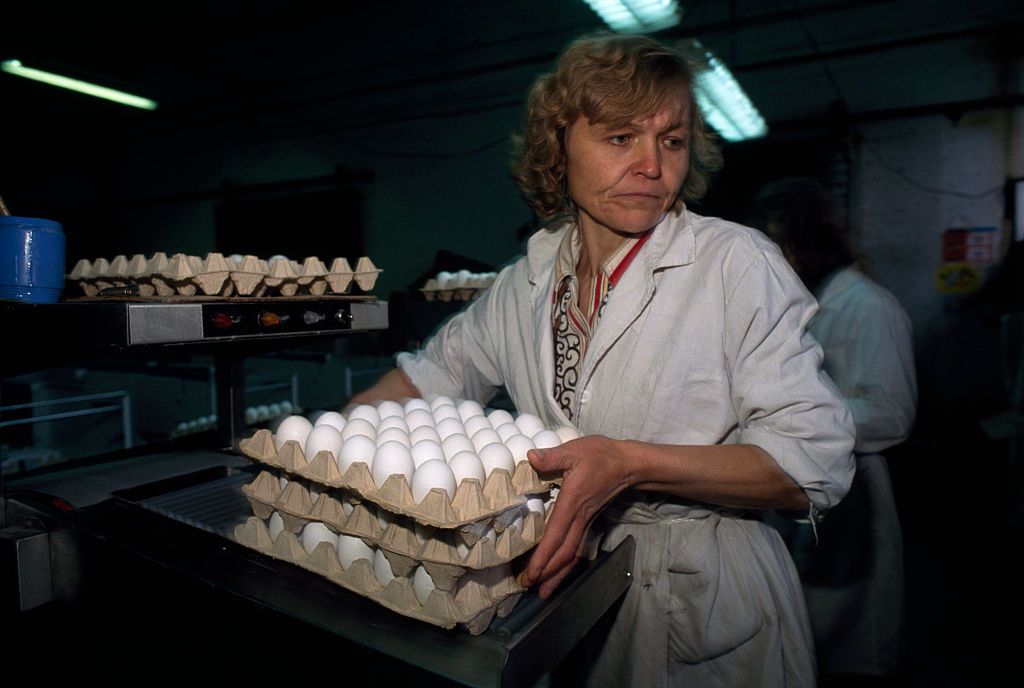
- Price of a dozen eggs: $0.55
- Adjusted for 2025 inflation: $5.88
1964
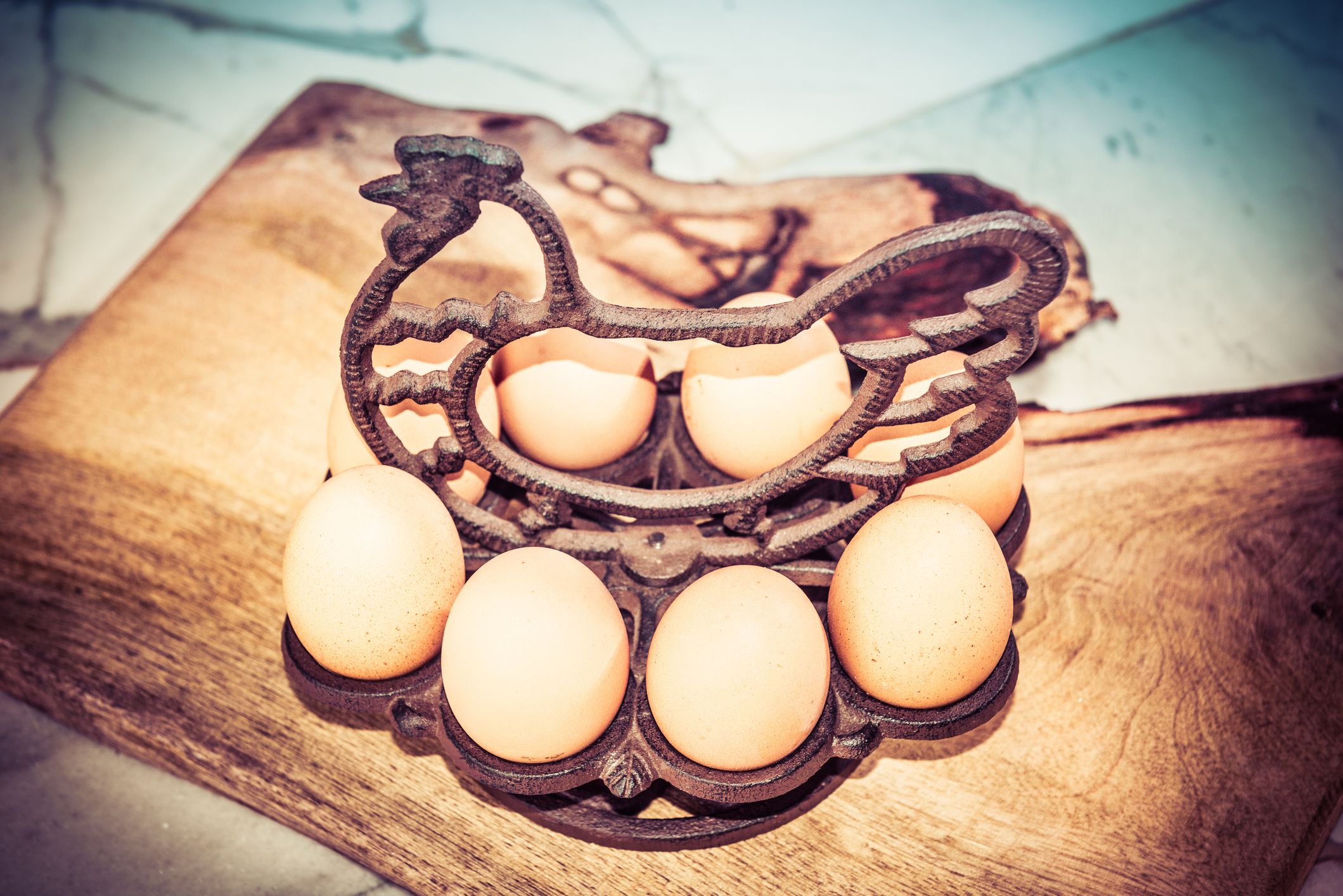
- Price of a dozen eggs: $0.54
- Adjusted for 2025 inflation: $5.68
1965
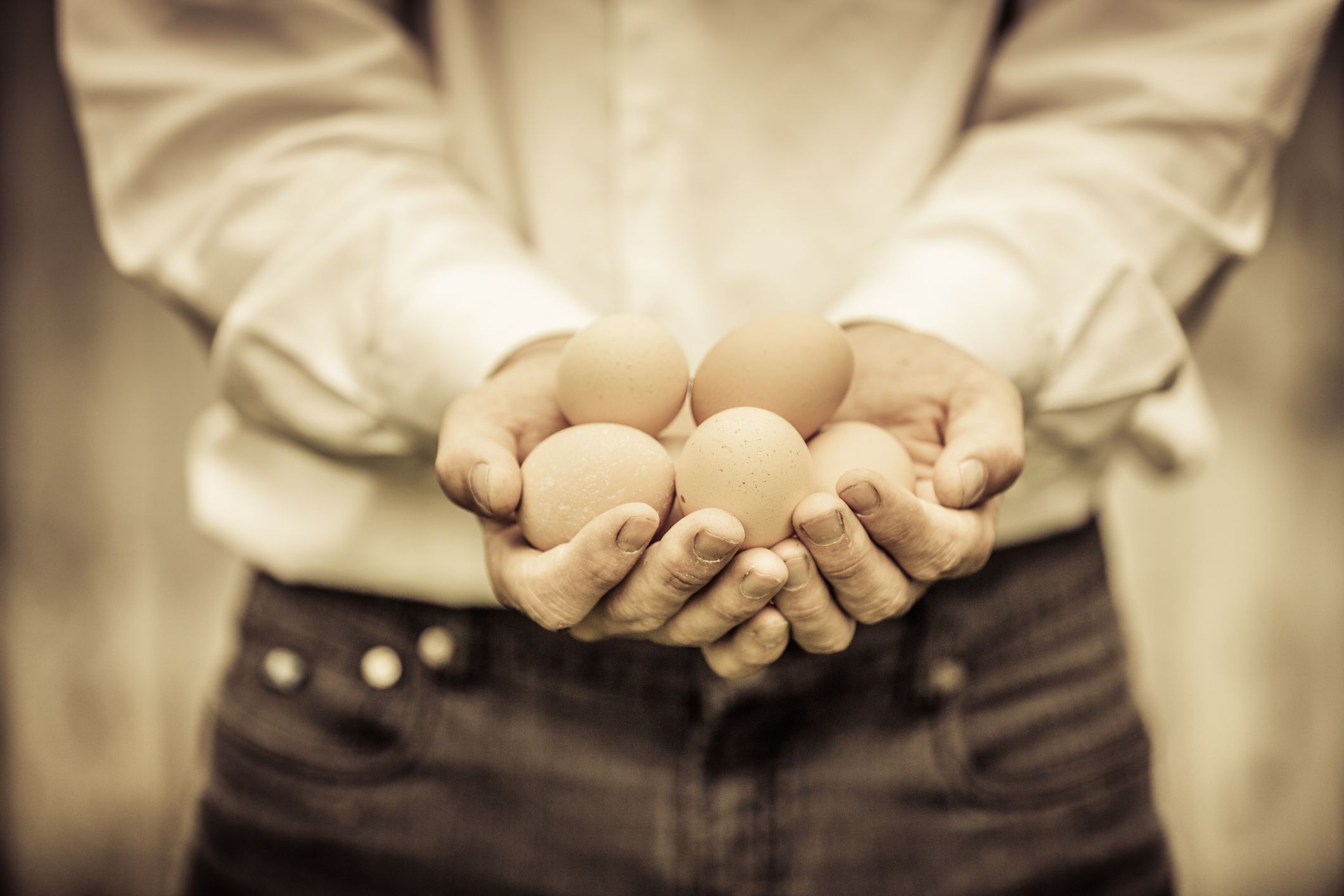
- Price of a dozen eggs: $0.53
- Adjusted for 2025 inflation: $5.52
1966

- Price of a dozen eggs: $0.60
- Adjusted for 2025 inflation: $6.13
1967
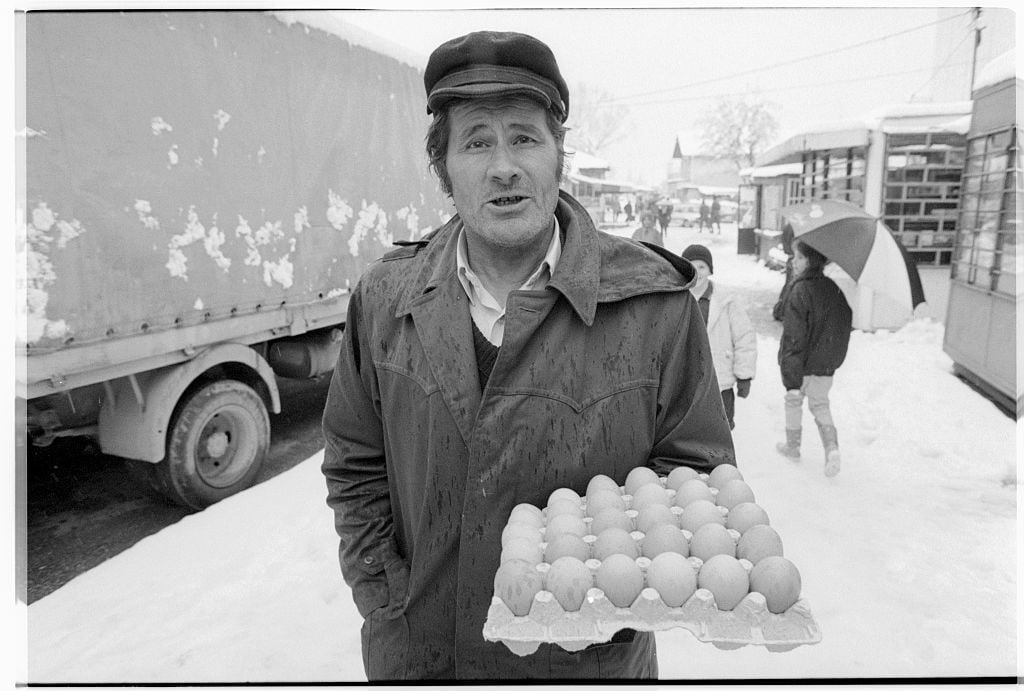
- Price of a dozen eggs: $0.49
- Adjusted for 2025 inflation: $4.84
1968

- Price of a dozen eggs: $0.53
- Adjusted for 2025 inflation: $5.05
1969
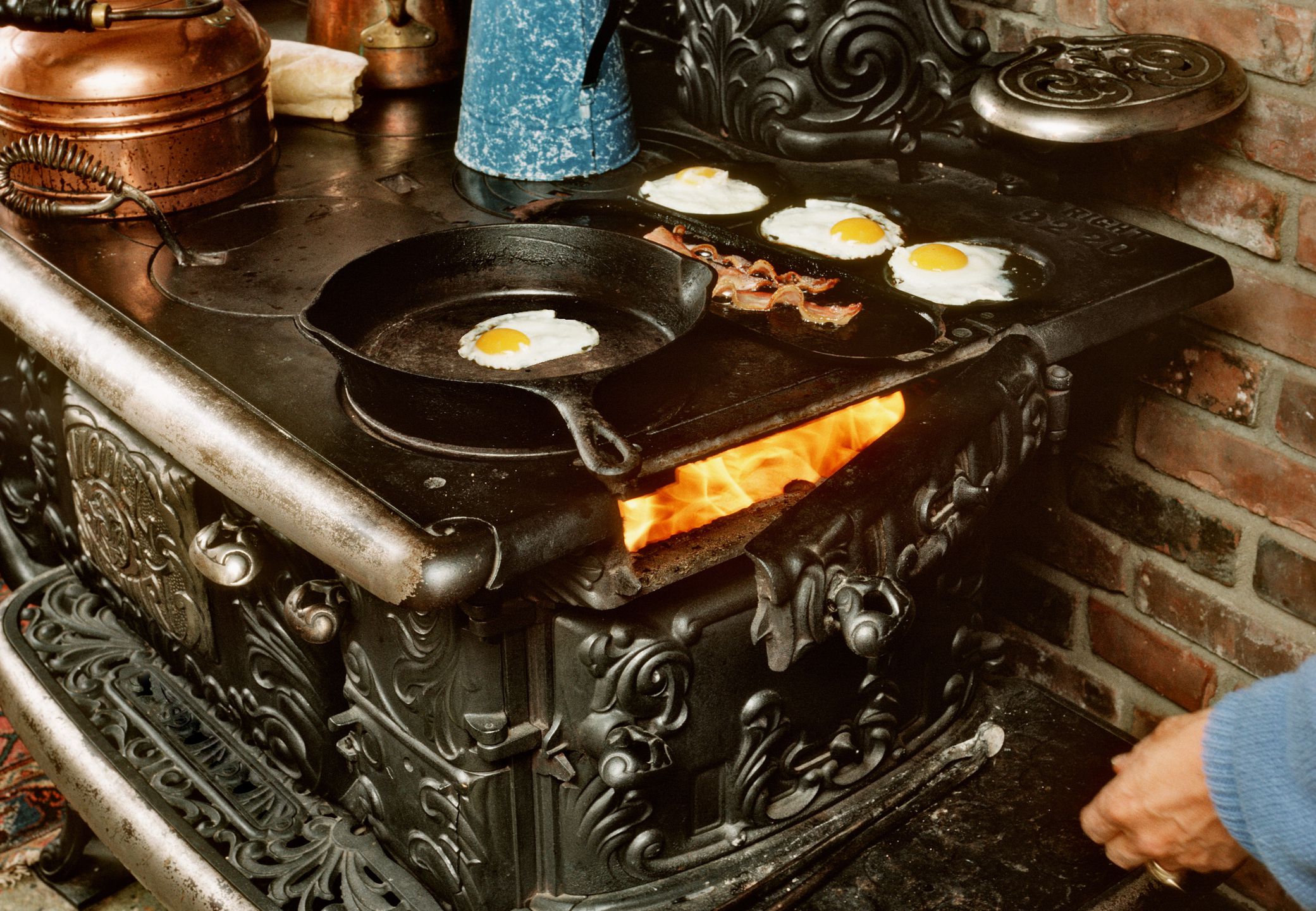
- Price of a dozen eggs: $0.62
- Adjusted for 2025 inflation: $5.66
1970
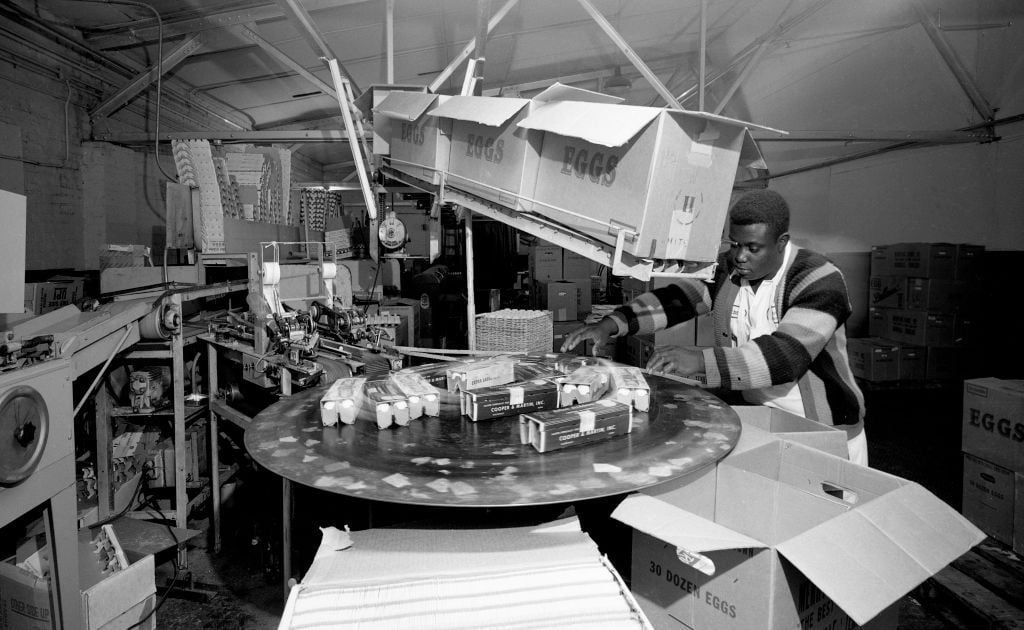
- Price of a dozen eggs: $0.61
- Adjusted for 2025 inflation: $5.24
The 1970s were a financial headache for most Americans — the decade started with a stable economy, but that didn’t last.
In 1971, the U.S. abandoned the gold standard, weakening the dollar and driving up consumer prices. Things got worse in 1973 when the OPEC oil embargo sent energy costs soaring, triggering one of the worst inflation crises in U.S. history.
Egg prices spiked alongside everything else, and by 1973, they had jumped significantly. The 1974-75 recession brought high unemployment and stagflation, keeping grocery prices high. For the rest of the decade, eggs remained expensive.
1971

- Price of a dozen eggs: $0.53
- Adjusted for 2025 inflation: $4.33
1972

- Price of a dozen eggs: $0.52
- Adjusted for 2025 inflation: $4.11
1973

- Price of a dozen eggs: $0.78
- Adjusted for 2025 inflation: $5.95
1974
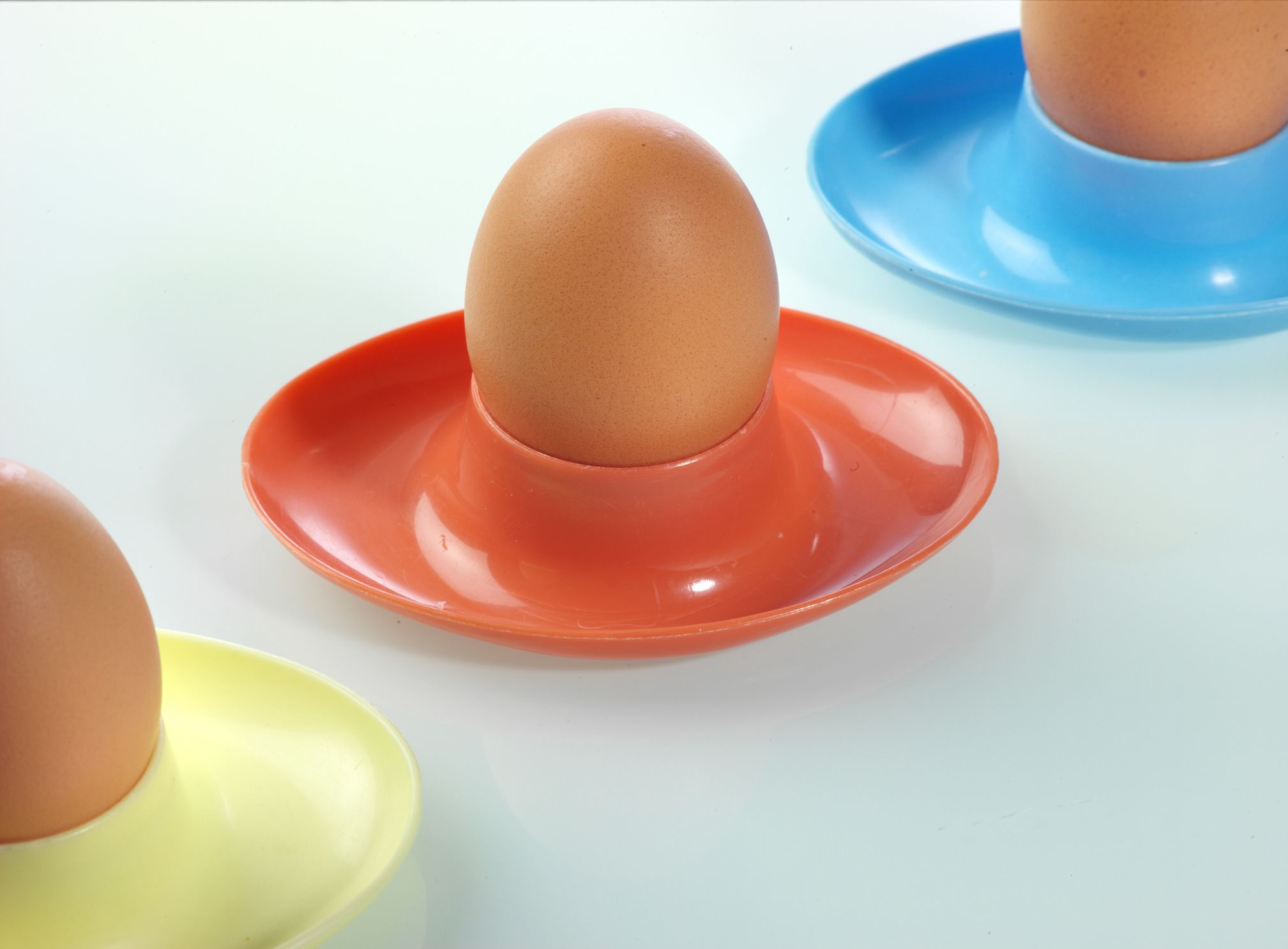
- Price of a dozen eggs: $0.78
- Adjusted for 2025 inflation: $5.44
1975
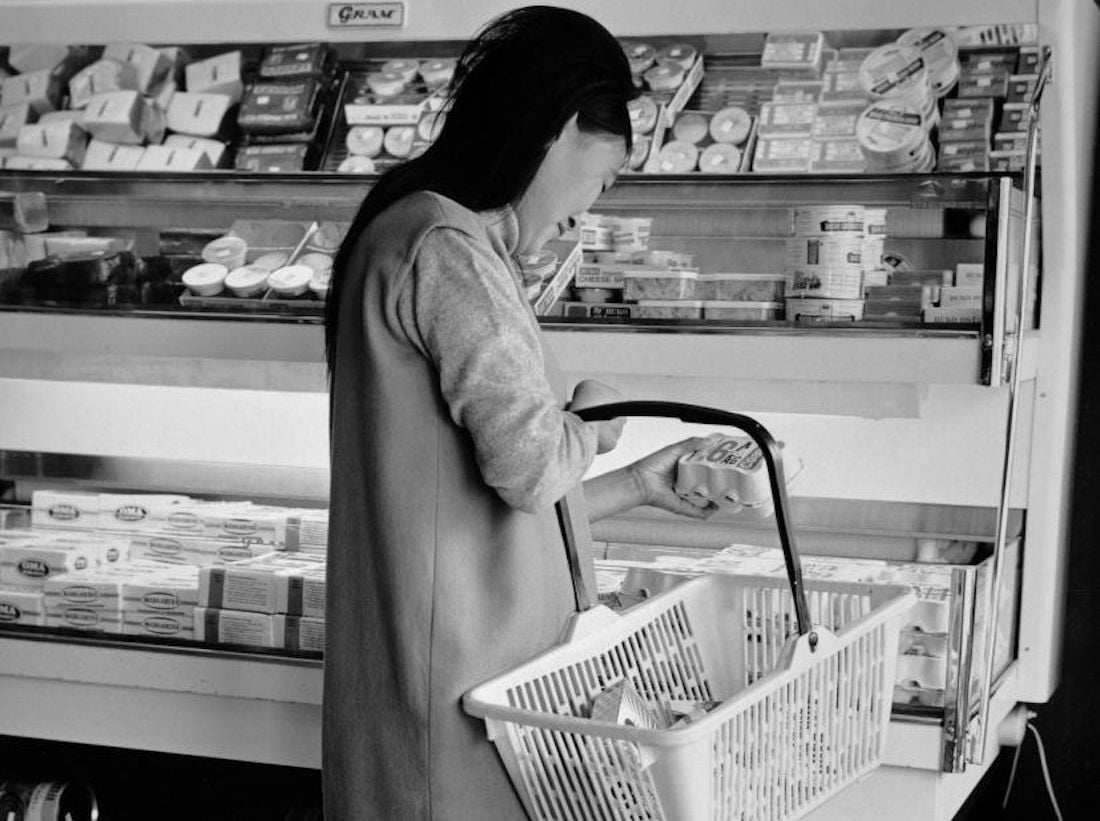
- Price of a dozen eggs: $0.77
- Adjusted for 2025 inflation: $4.80
1976

- Price of a dozen eggs: $0.84
- Adjusted for 2025 inflation: $4.91
1977
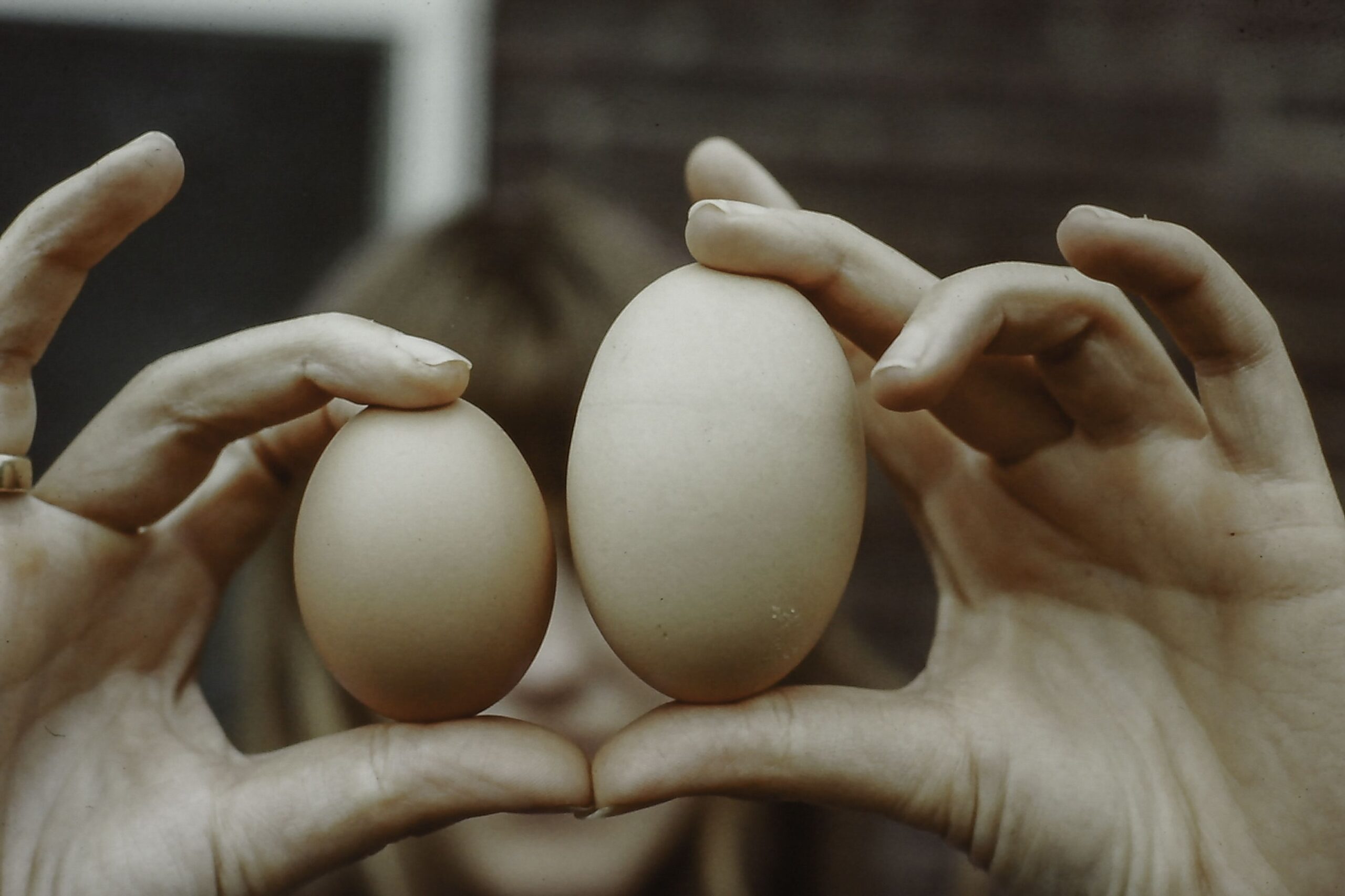
- Price of a dozen eggs: $0.82
- Adjusted for 2025 inflation: $4.55
1978
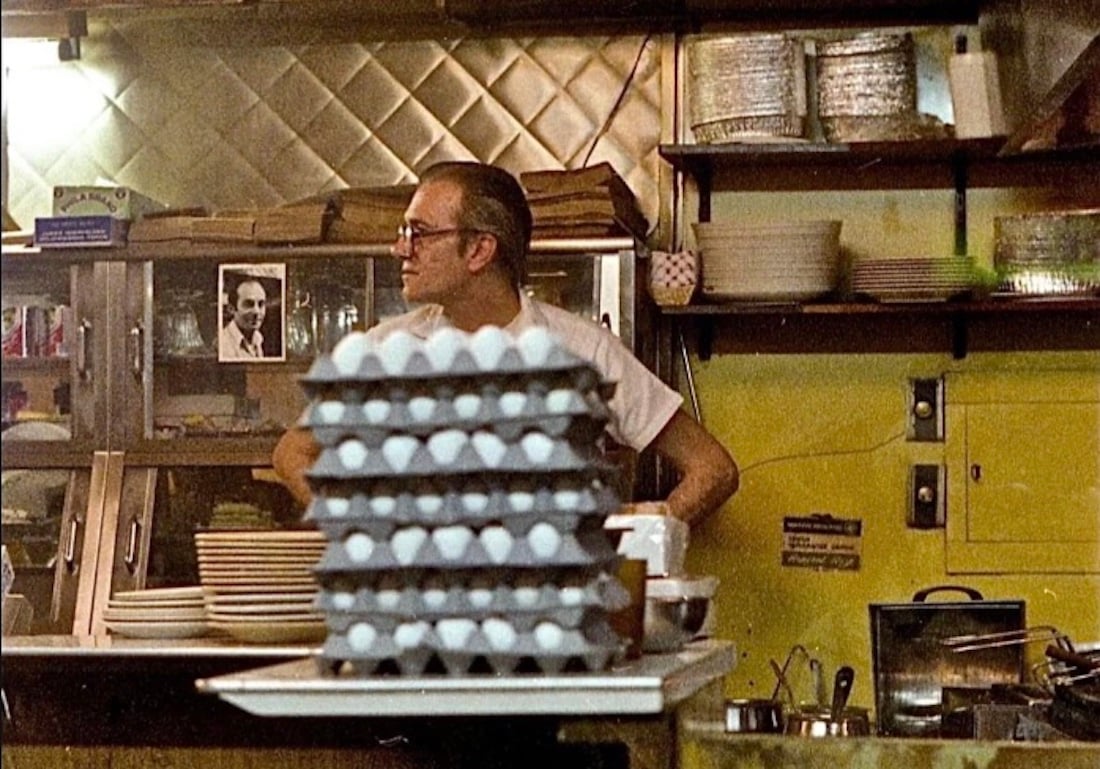
- Price of a dozen eggs: $0.79
- Adjusted for 2025 inflation: $4.11
1979
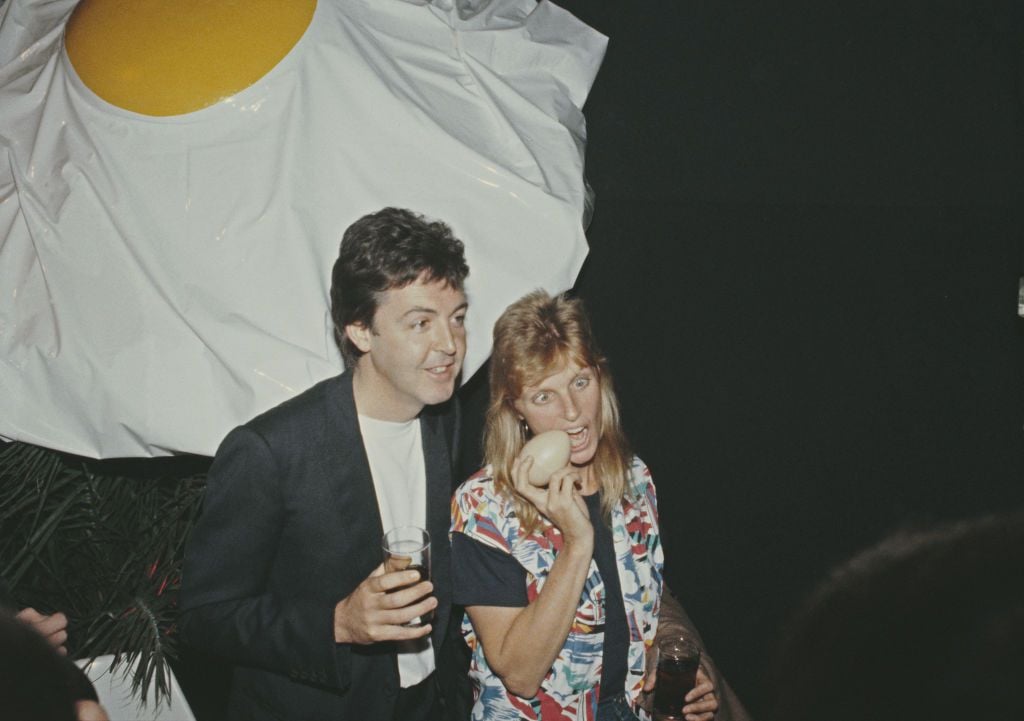
The Bureau of Labor Statistics revised the CPI in 1978, which meant they couldn’t release average retail food prices from July 1978 to December 1979.
1980
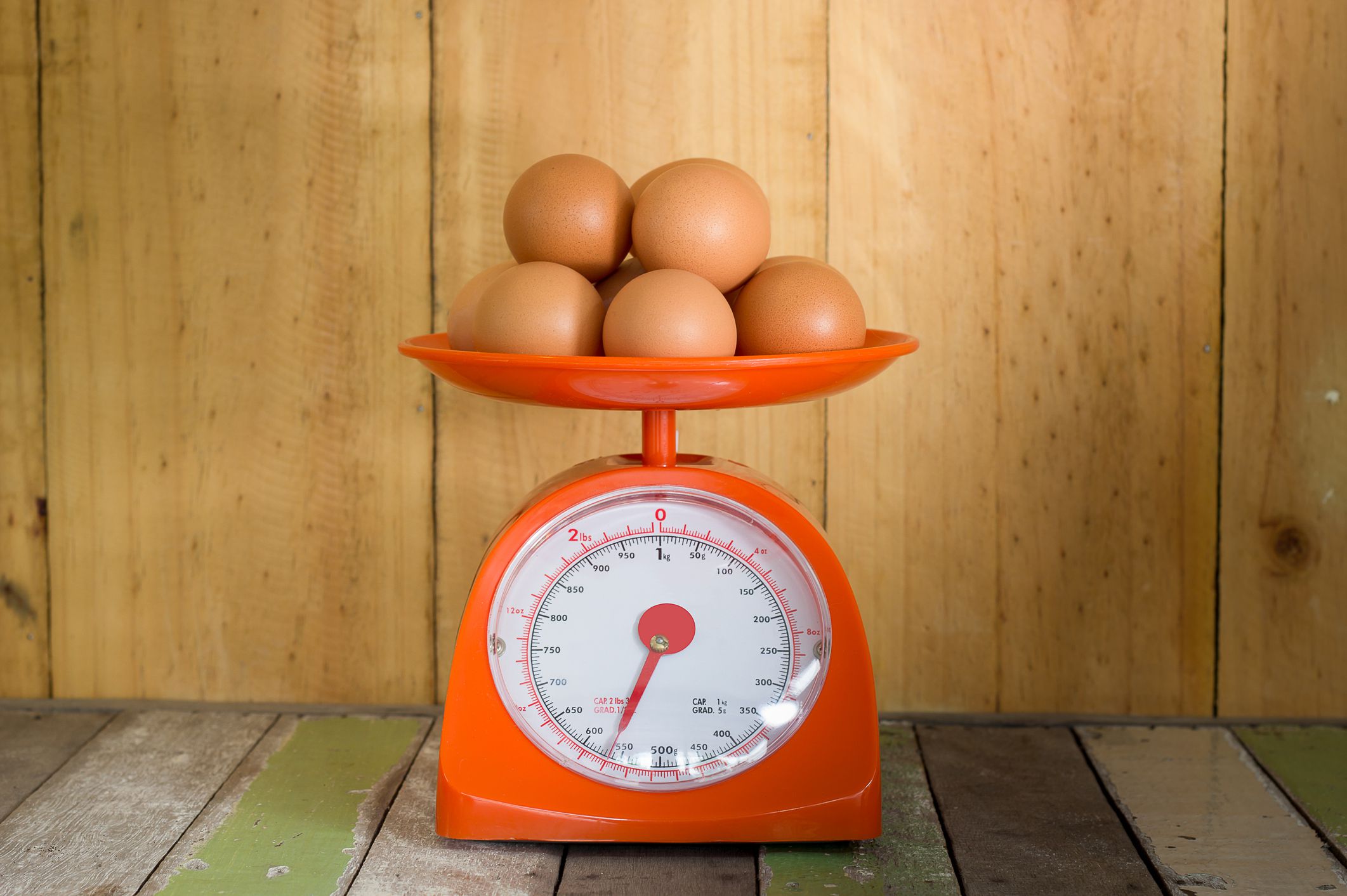
- Price of a dozen eggs: $0.84
- Adjusted for 2025 inflation: $3.51
The 1980s started off rough, with high inflation and a deep recession making everything more expensive, including eggs.
To control inflation, the Federal Reserve hiked interest rates, which slowed things down but also sent unemployment soaring past 10% by 1982. With people spending less, food prices, including eggs, started dropping. By 1985, eggs were ridiculously cheap, hitting some of the lowest prices in modern history.
As the economy picked up in the mid-to-late ‘80s, factory farming and better distribution kept eggs affordable. By the end of the decade, prices had crept up a little, but compared to past years, eggs were still a budget-friendly staple in every kitchen.
1981
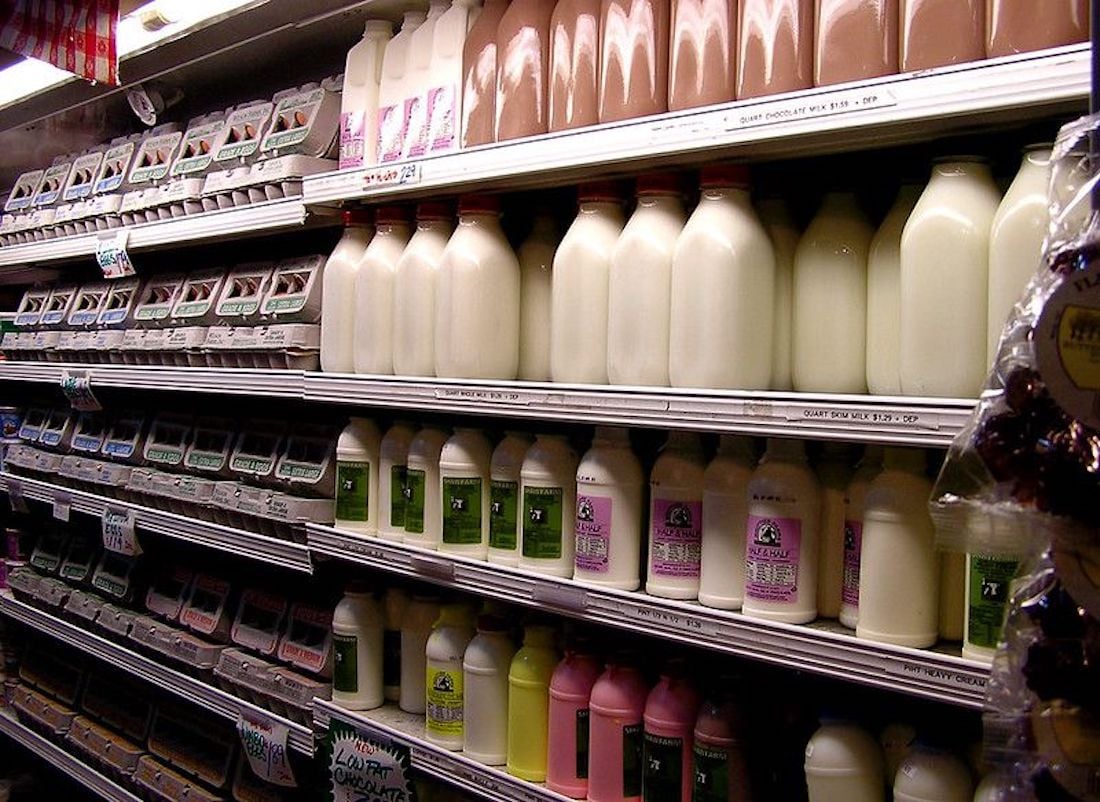
- Price of a dozen eggs: $0.90
- Adjusted for 2025 inflation: $3.36
1982
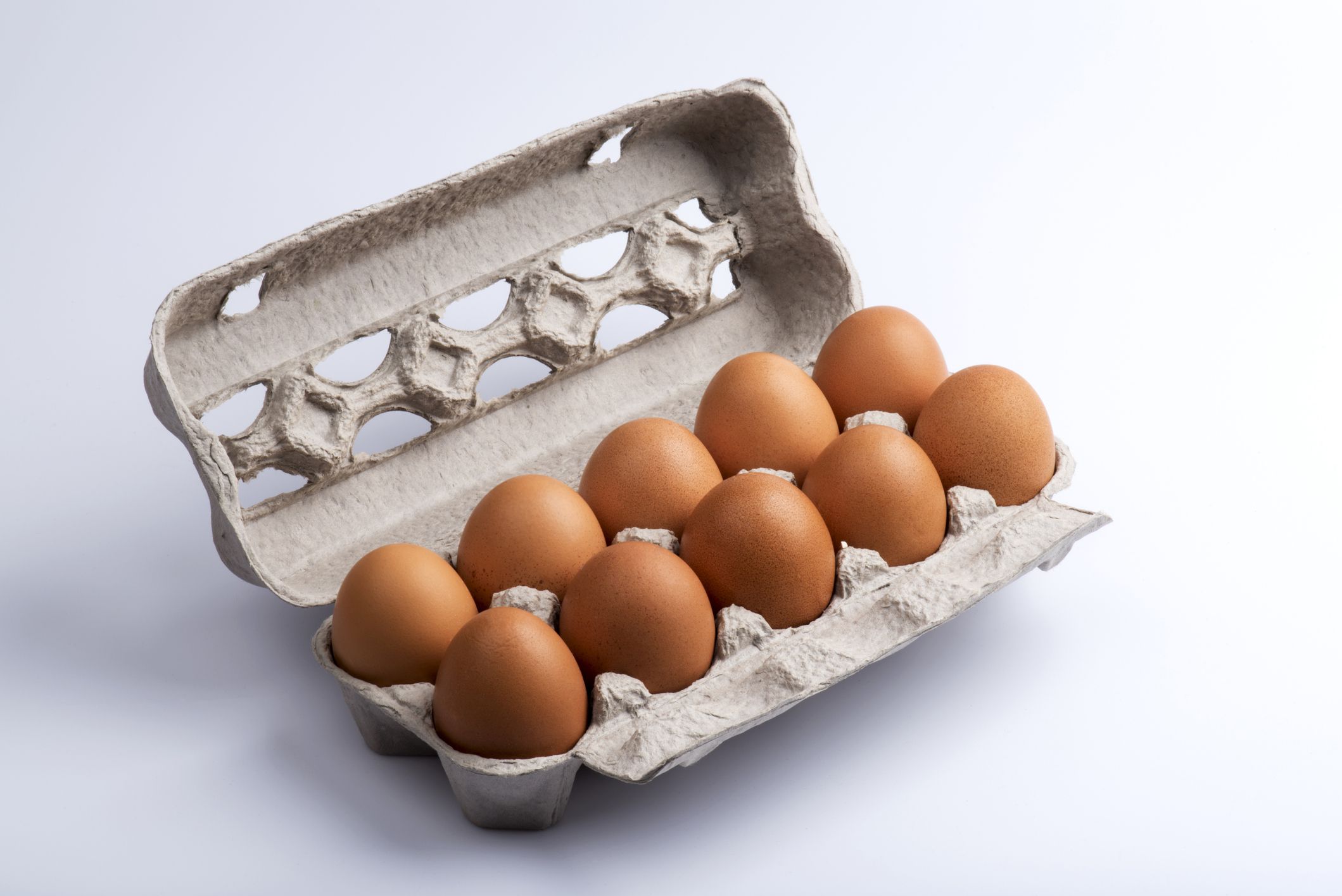
- Price of a dozen eggs: $0.87
- Adjusted for 2025 inflation: $3.00
1983
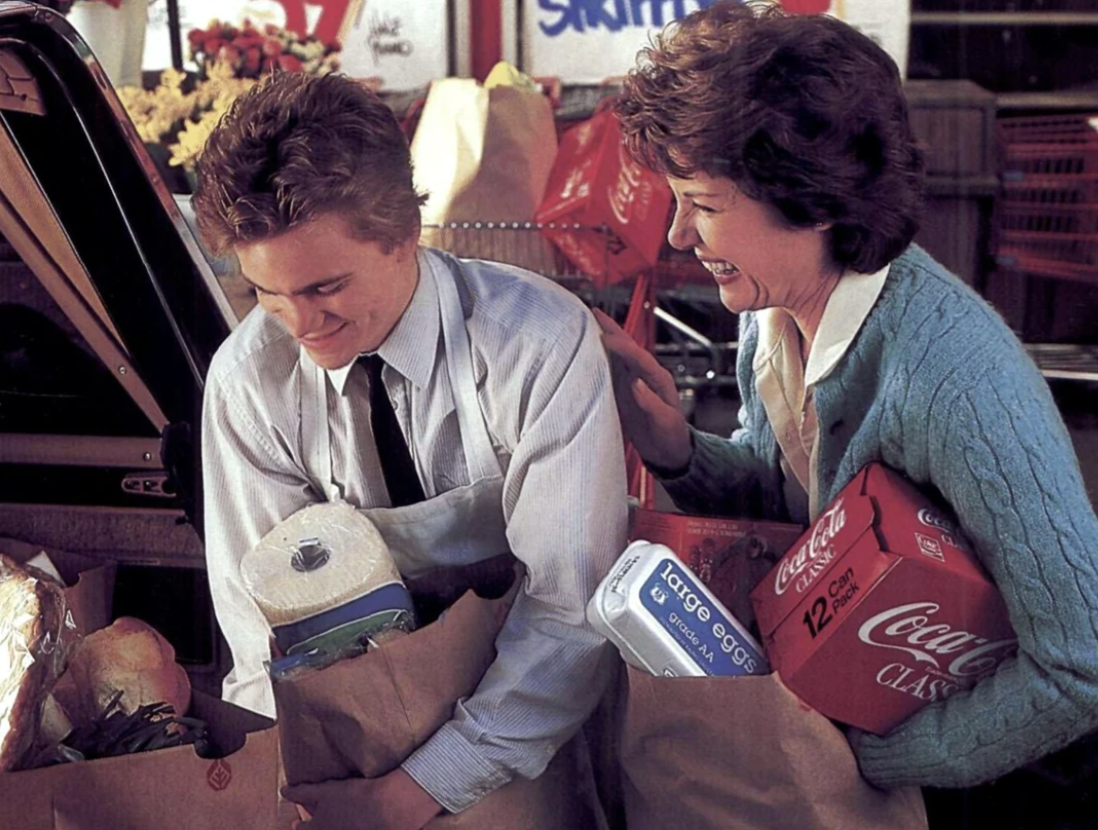
- Price of a dozen eggs: $0.89
- Adjusted for 2025 inflation: $2.96
1984
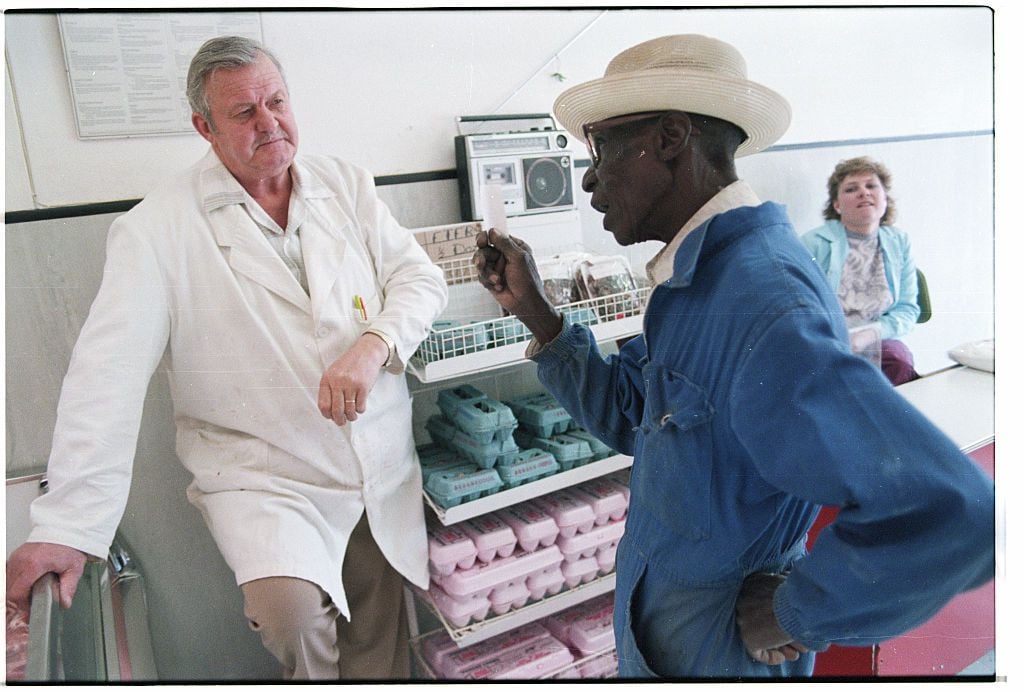
- Price of a dozen eggs: $1
- Adjusted for 2025 inflation: $3.19
1985

- Price of a dozen eggs: $0.80
- Adjusted for 2025 inflation: $2.46
1986
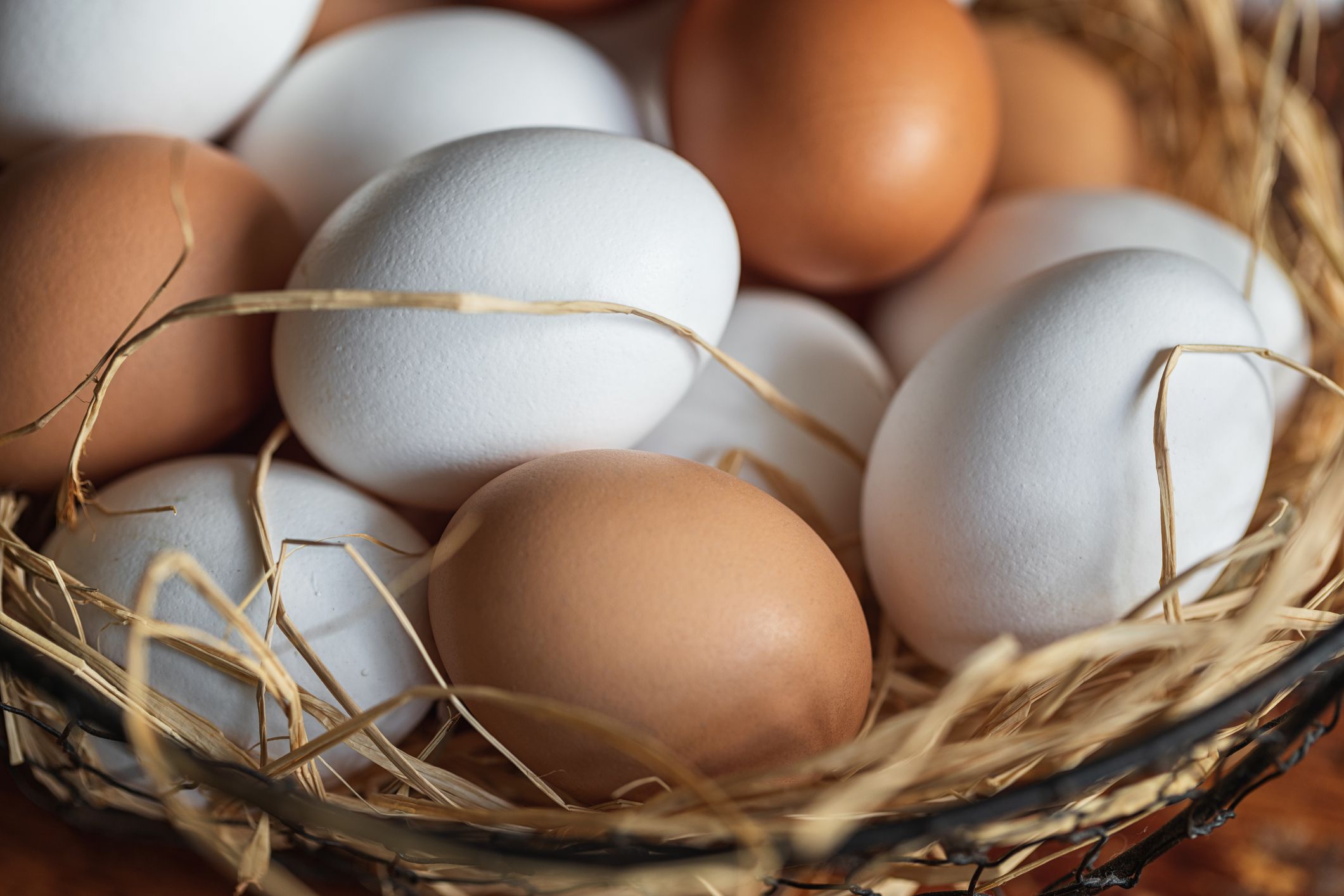
- Price of a dozen eggs: $0.87
- Adjusted for 2025 inflation: $2.58
1987
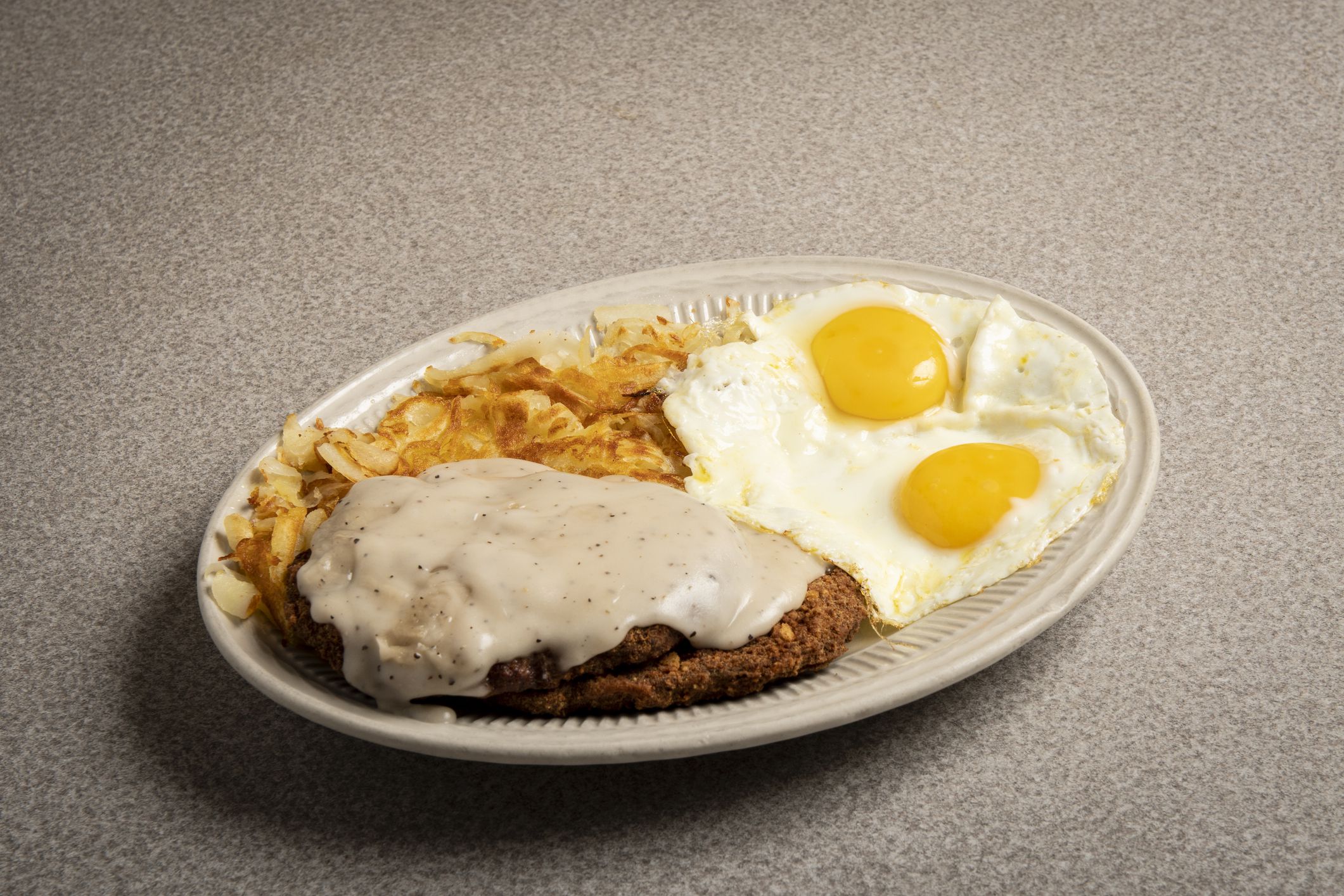
- Price of a dozen eggs: $0.78
- Adjusted for 2025 inflation: $2.28
1988
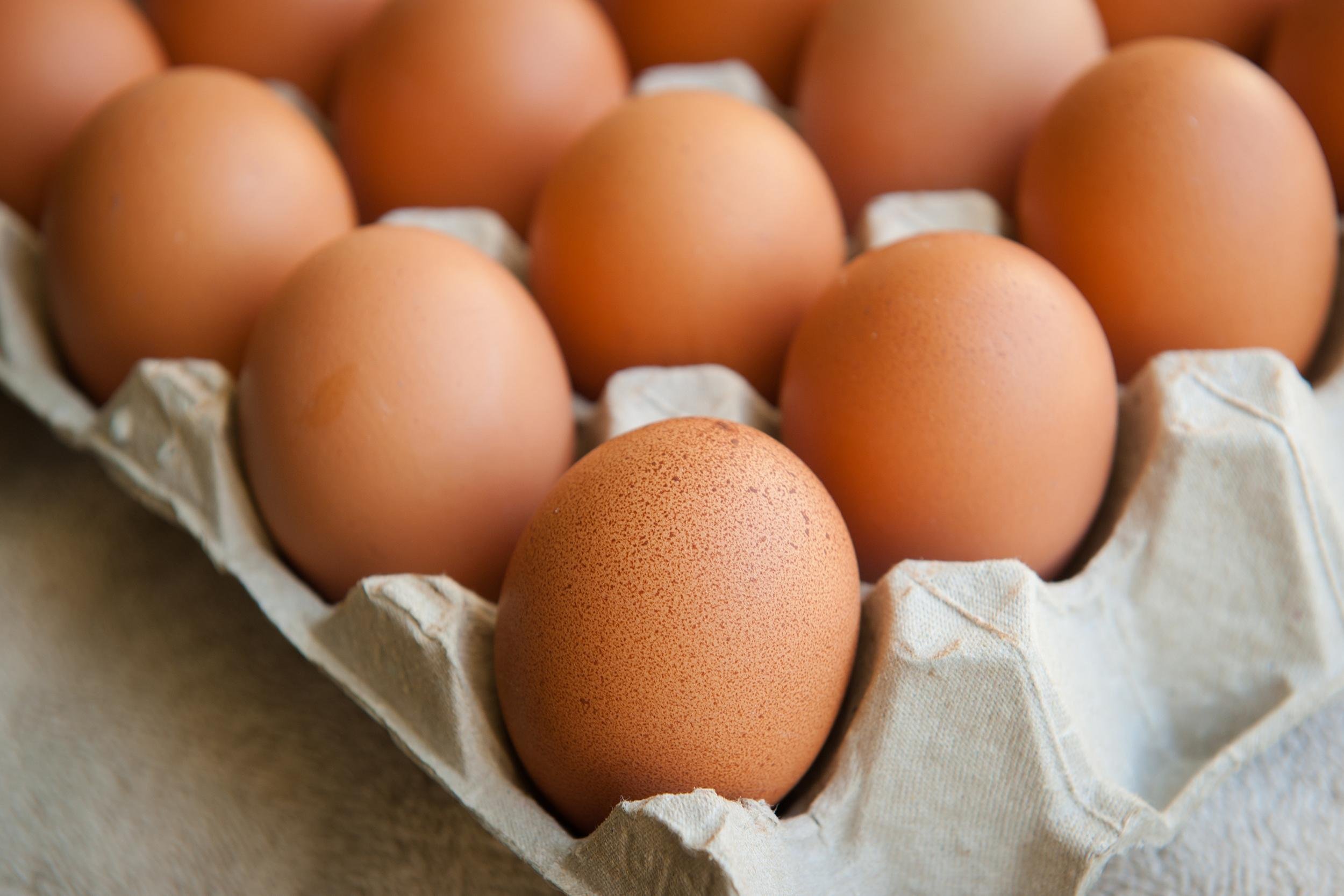
- Price of a dozen eggs: $0.79
- Adjusted for 2025 inflation: $2.22
1989

- Price of a dozen eggs: $1
- Adjusted for 2025 inflation: $2.68
1990
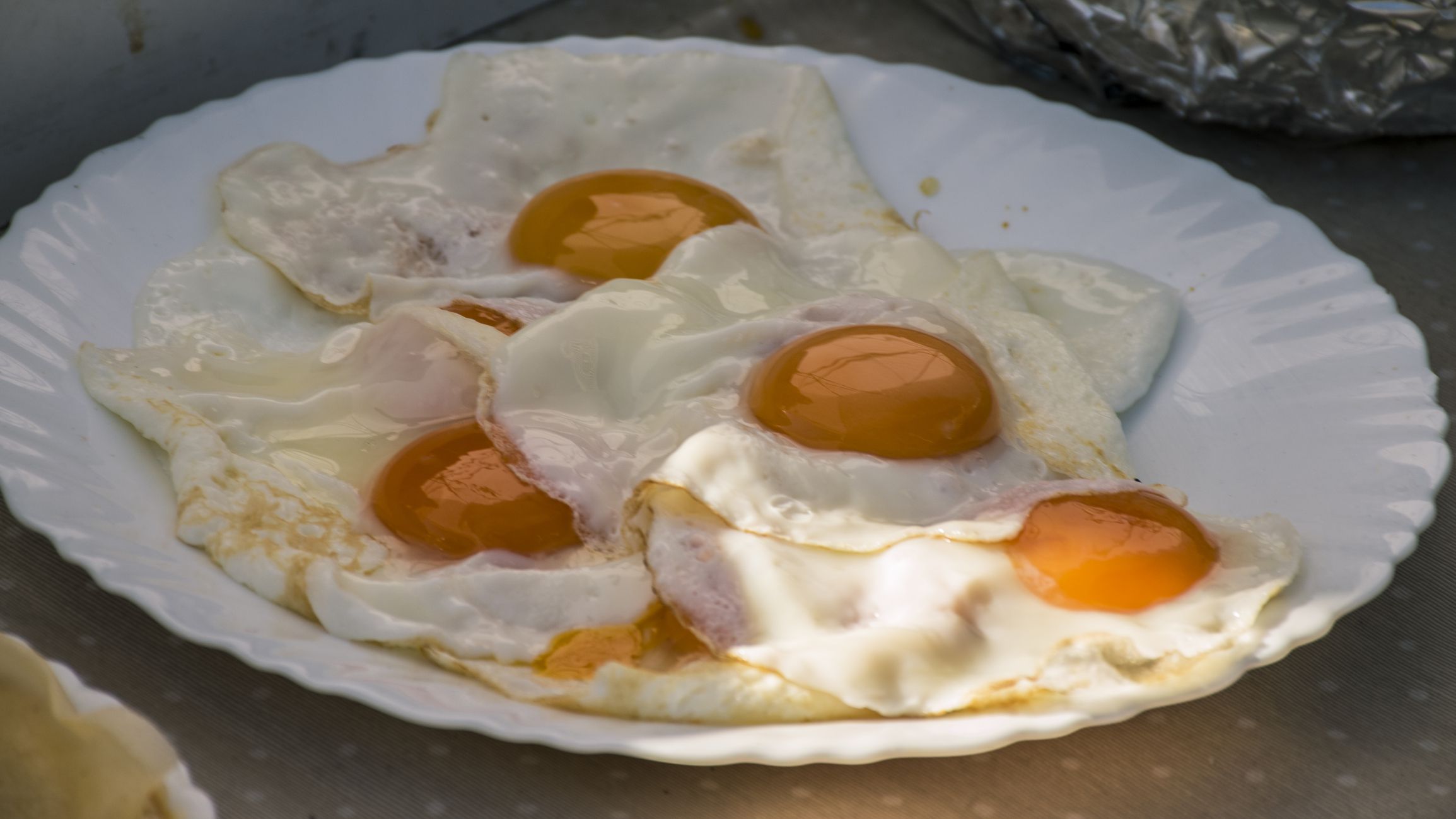
- Price of a dozen eggs: $1.01
- Adjusted for 2025 inflation: $2.57
The 1990s were a great consumer decade, especially for bacon and eggs breakfasts.
The economy boomed throughout the decade, and Americans enjoyed one of the most stable financial periods in recent history. With industrialized farming and advancements in food production, egg prices remained consistently low, even as demand increased. The rise of mass production and a stable economy made eggs more accessible and affordable than in many previous decades.
1991
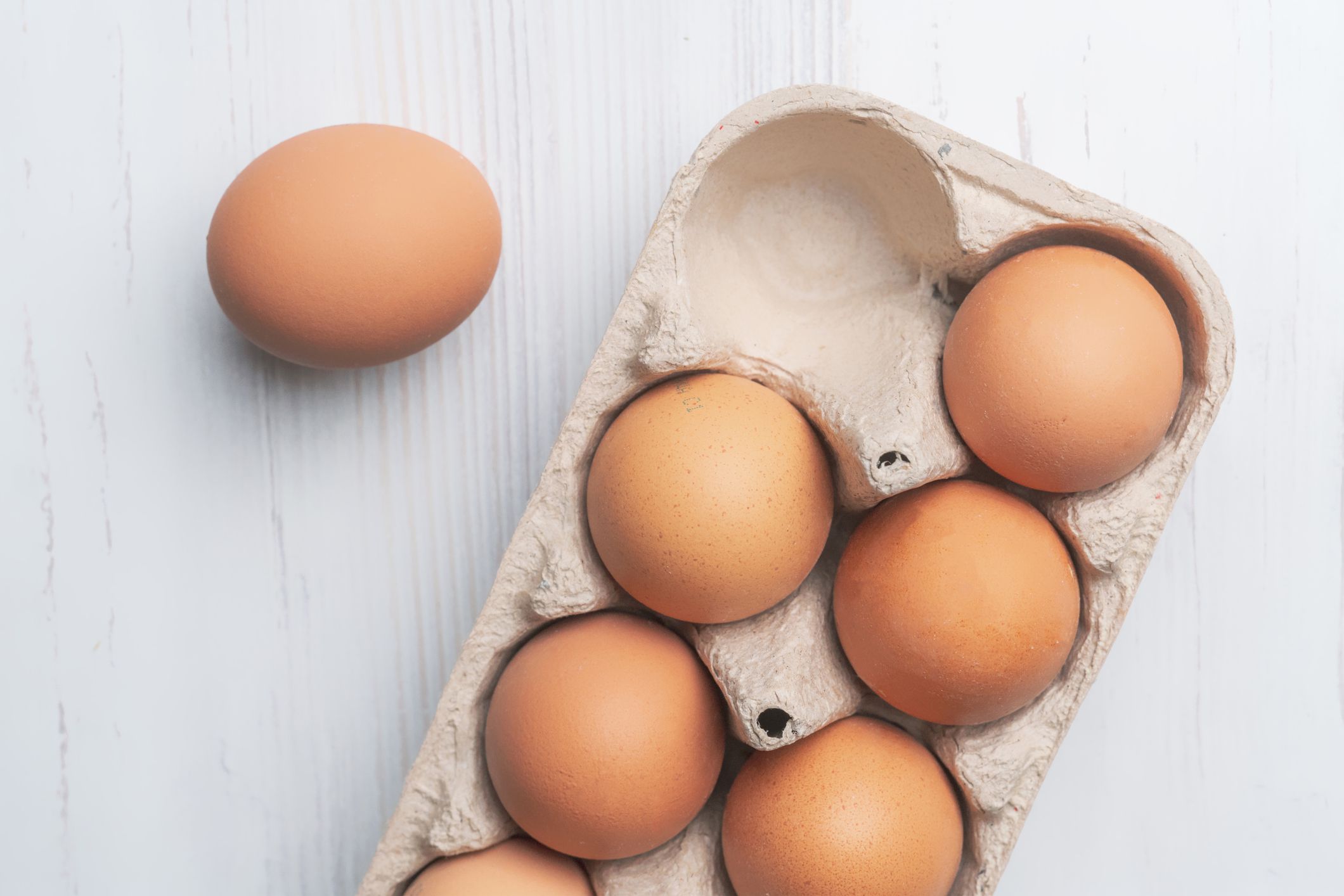
- Price of a dozen eggs: $0.99
- Adjusted for 2025 inflation: $2.39
1992

- Price of a dozen eggs: $0.86
- Adjusted for 2025 inflation: $2.02
1993
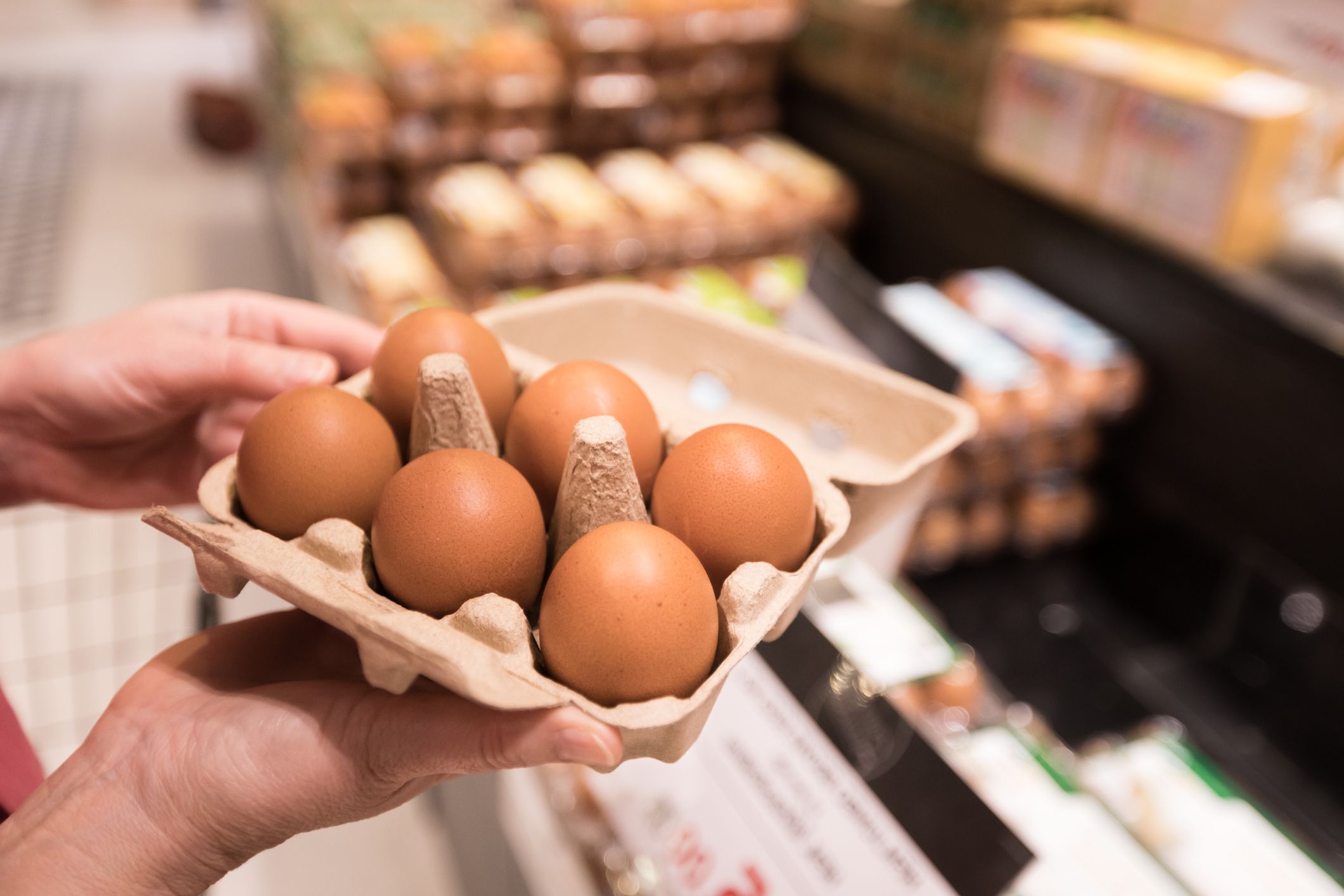
- Price of a dozen eggs: $0.91
- Adjusted for 2025 inflation: $2.07
1994
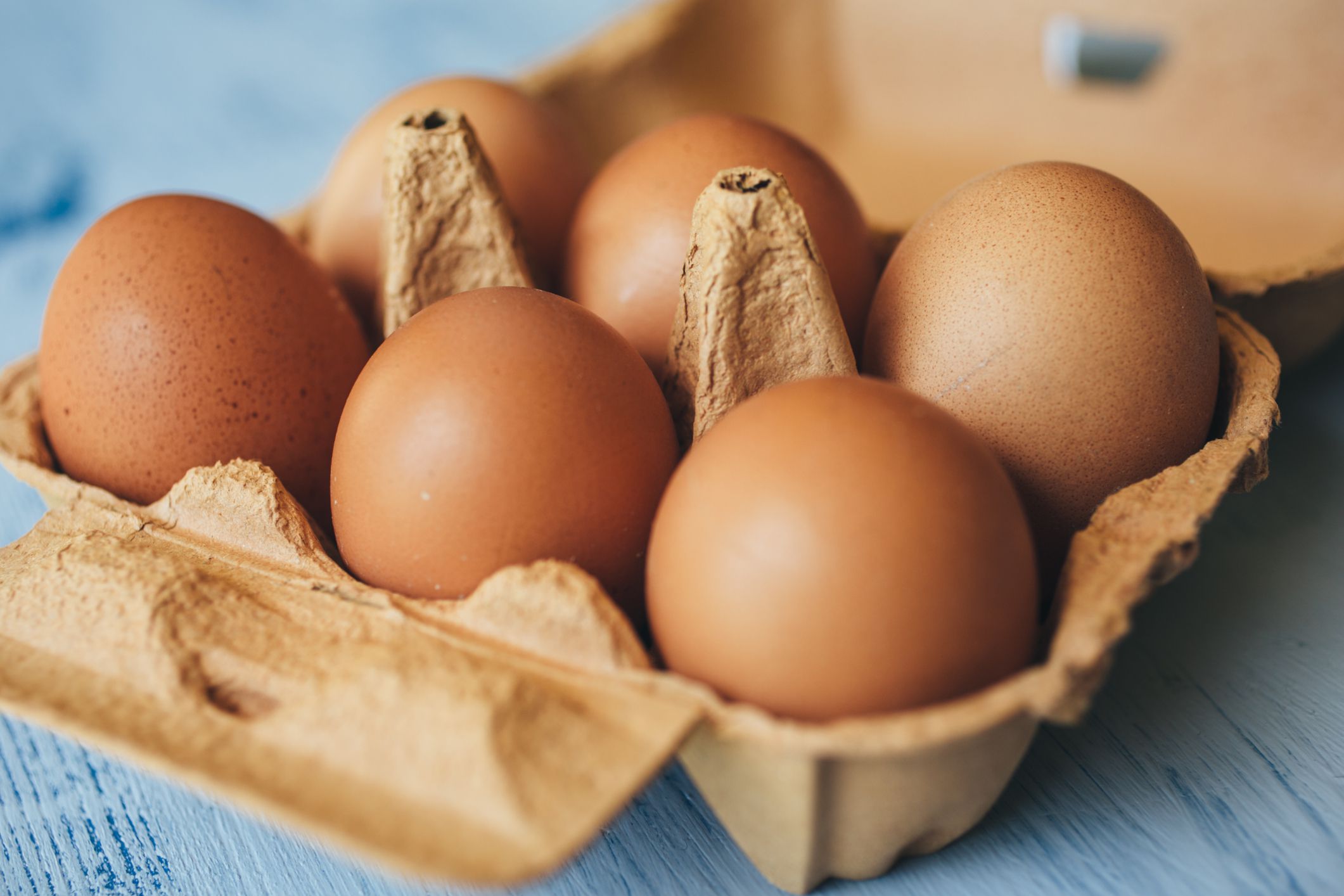
- Price of a dozen eggs: $0.86
- Adjusted for 2025 inflation: $1.91
1995
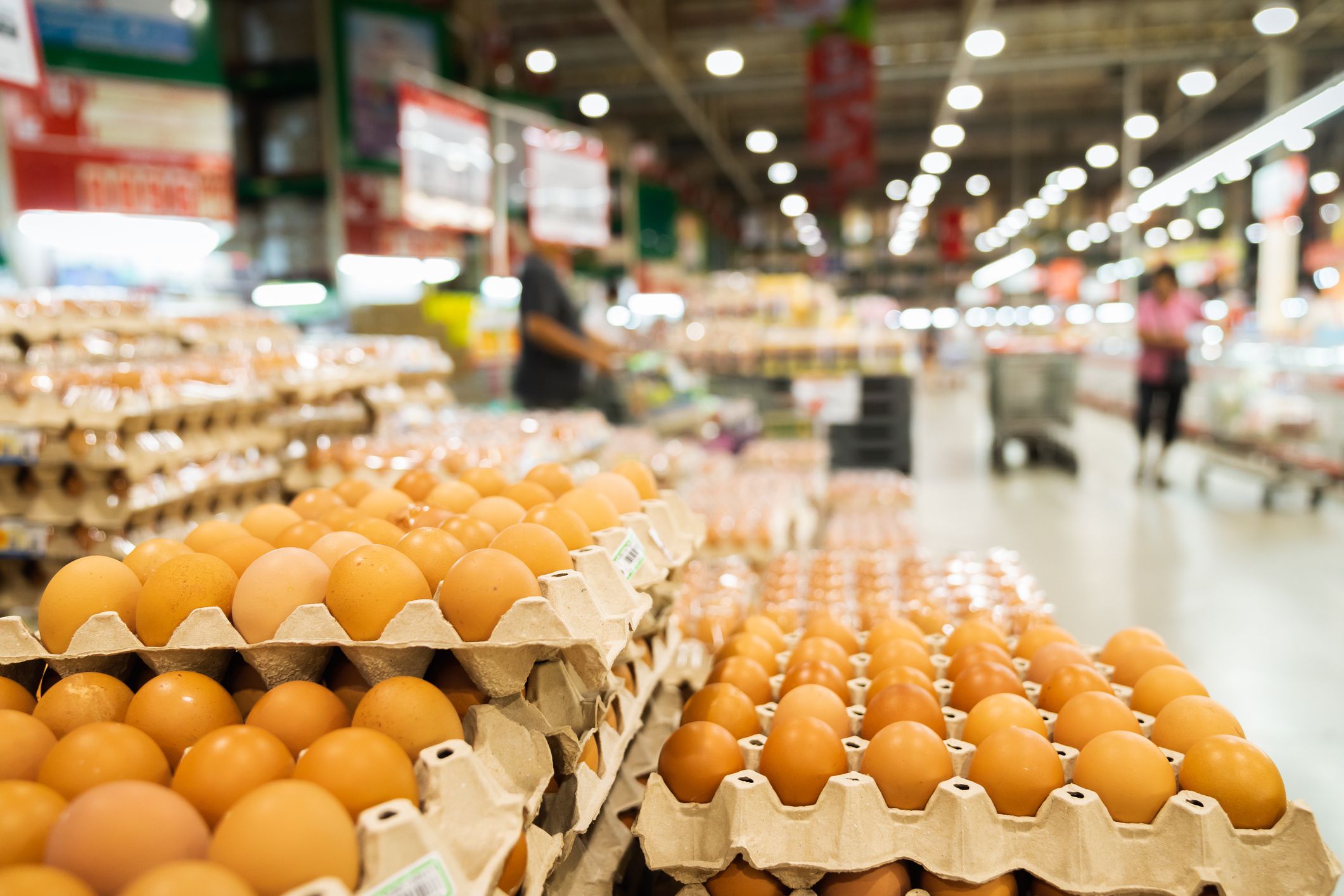
- Price of a dozen eggs: $0.92
- Adjusted for 2025 inflation: $1.99
1996
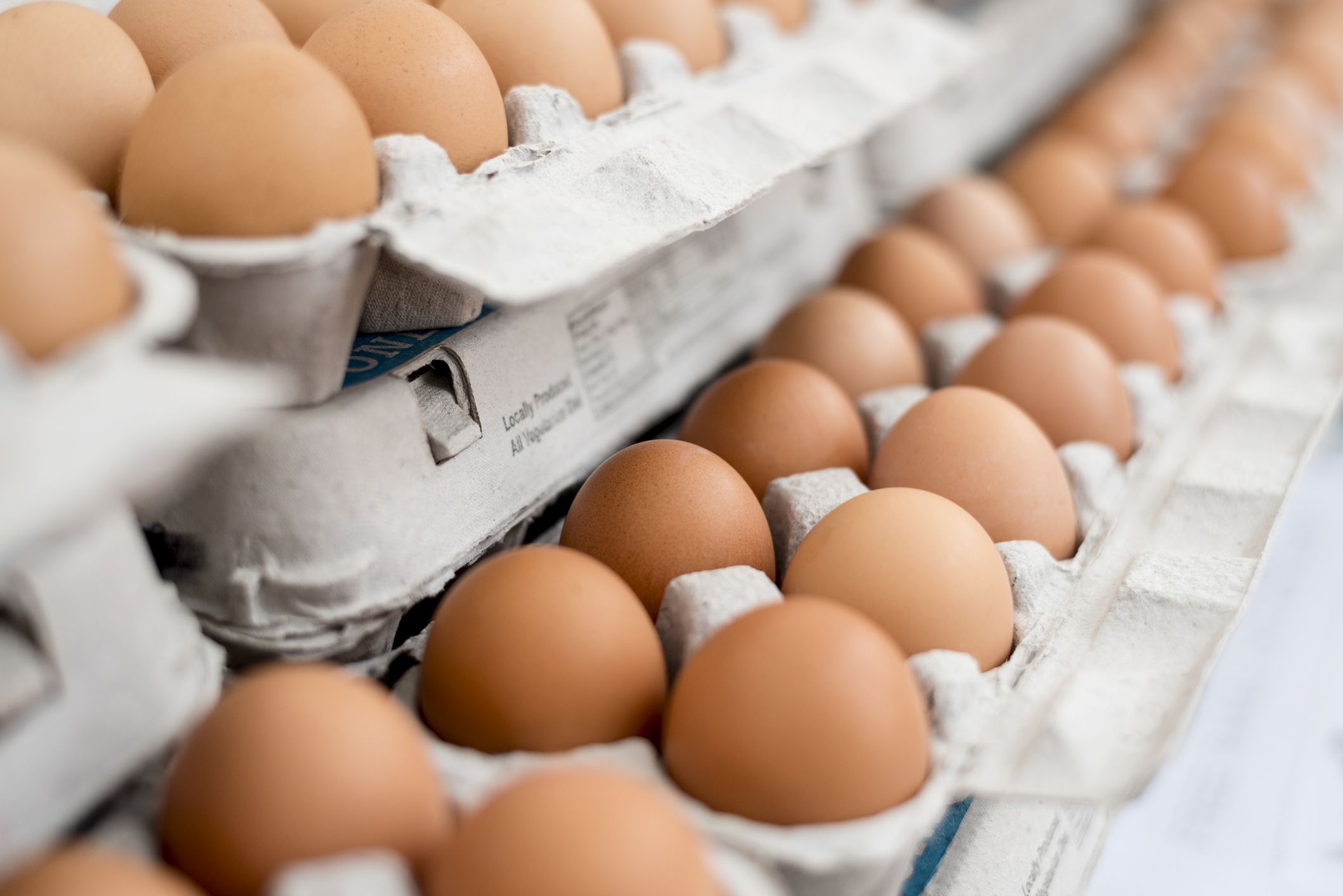
- Price of a dozen eggs: $1.11
- Adjusted for 2025 inflation: $2.34
1997
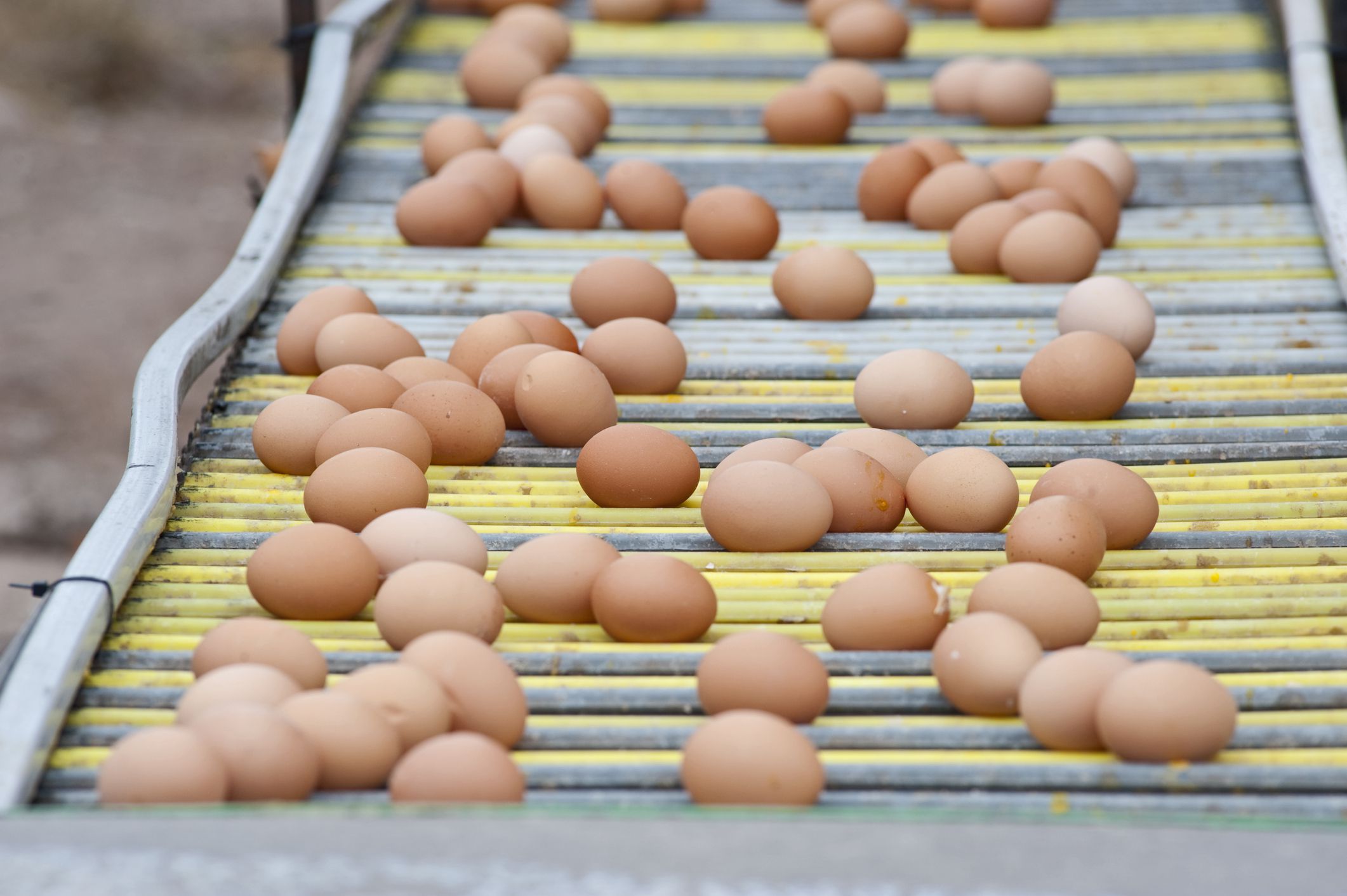
- Price of a dozen eggs: $1.06
- Adjusted for 2025 inflation: $2.16
1998
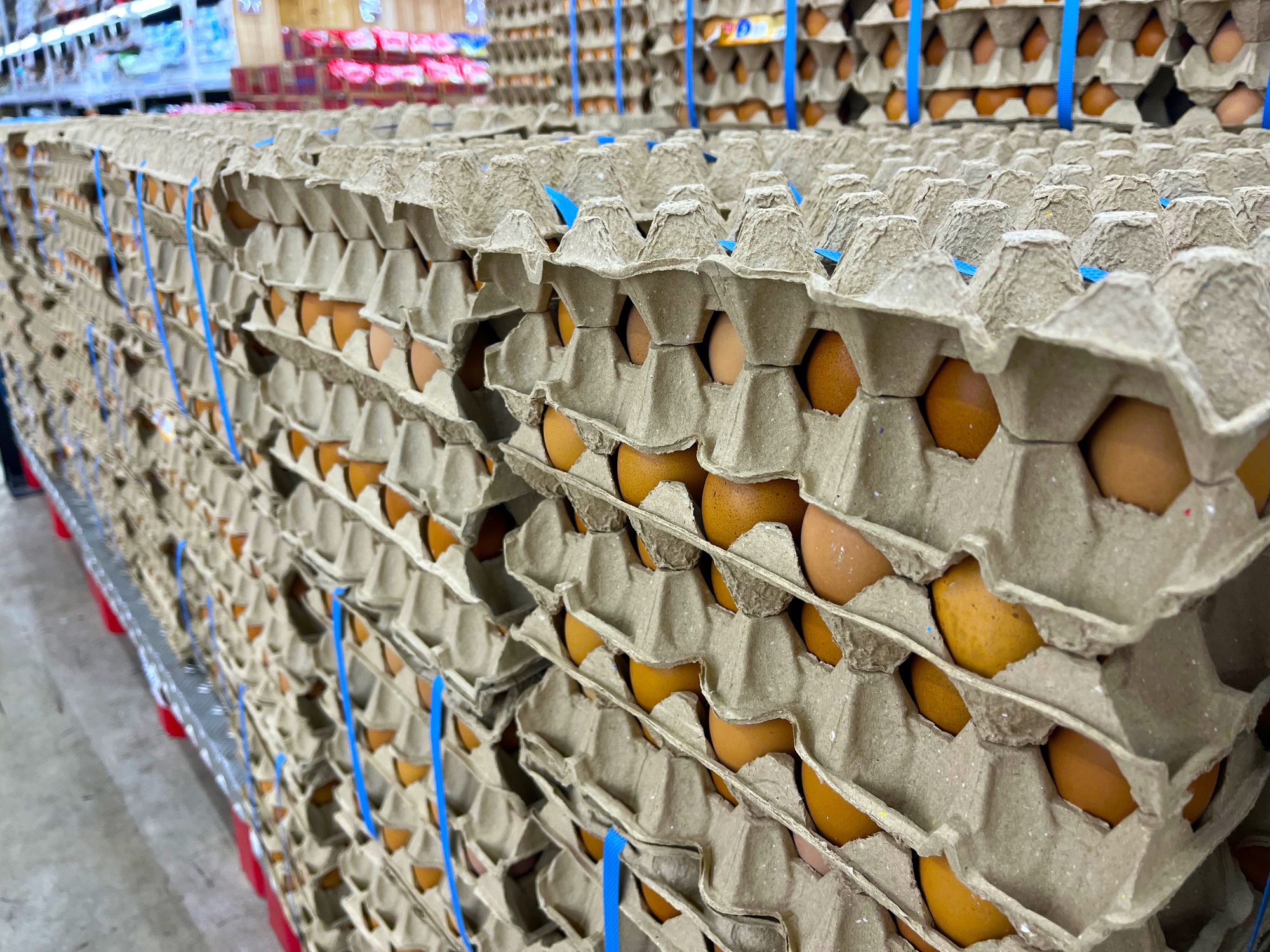
- Price of a dozen eggs: $1.04
- Adjusted for 2025 inflation: $2.09
1999

- Price of a dozen eggs: $0.96
- Adjusted for 2025 inflation: $1.90
Let’s Continue Down Memory Lane On Cheapism
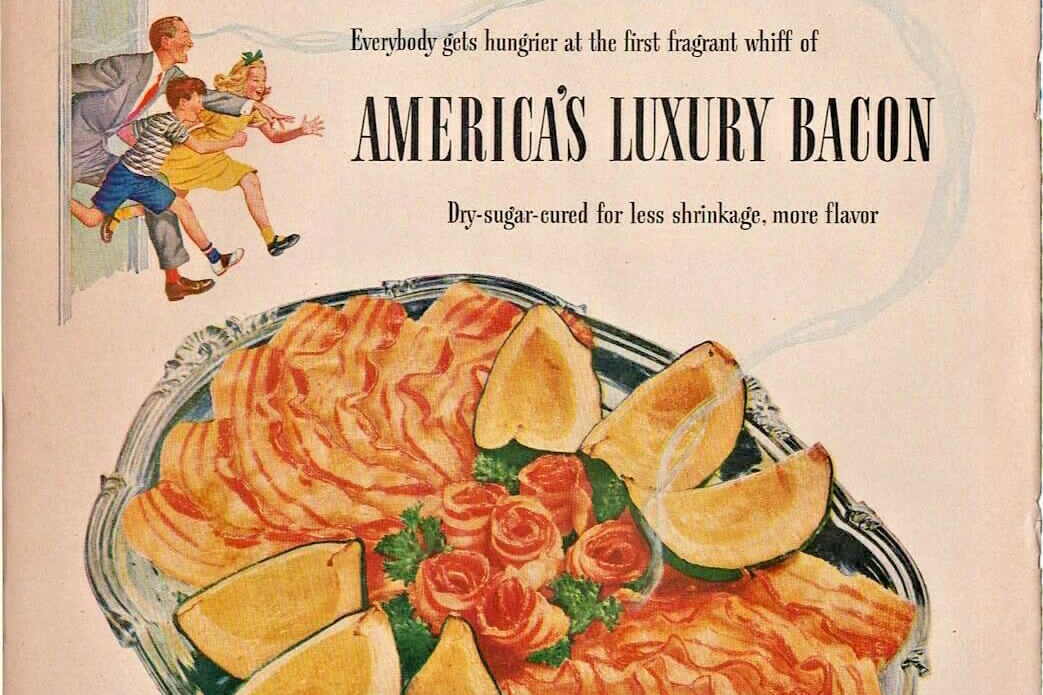
- The Price of Bacon the Year You Were Born — From pennies to dollars, find out how the cost of bacon has soared over the decades and what your birth-year pound would look like today.
- The Price of a School Lunch the Year You Were Born — What you used to buy for pocket change might now cost six times as much—take a nostalgic stroll through school-lunch prices across the years.
- 12 Vintage Back-of-the-Box Recipes That Are Still Delicious — Dig into the hidden gems printed on the backs of cereal boxes and soup cans and revive the quirky, delightfully simple recipes of your childhood.
